Beth Shalom, Pittsburgh Girls Choir partner for Yom HaShoah concert

Rabbi Aaron Bisno establishes








 By David Rullo
By David Rullo
Kathryn Barnard first heard “Anne Frank: A Living Voice” nearly two decades ago.
“Then, about 10 years ago, Aron Zelkowicz, the founder of the [Pittsburgh] Jewish Music Festival, asked me if we would perform it and I absolutely fell in love with it,” she said.
Barnard is the artistic director and founder of the Pittsburgh Girls Choir, a choral group for girls aged 6 to 18 that was launched in 2005 as the Oakland Girls Choir.
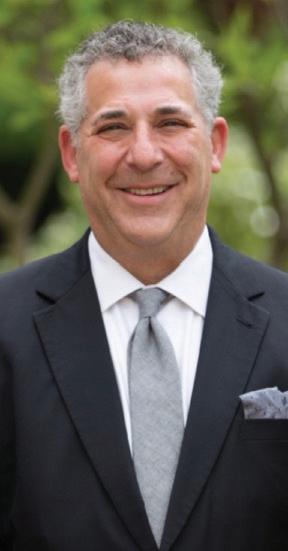
On April 16, the choir will sing the work, which incorporates entries from Anne Frank’s diary, along with “Ani Ma’amin” and Srul Irving Glick’s “Palm Trilogy,” in partnership with Beth Shalom’s Derekh program, as part of a Yom HaShoah commemoration concert at the Squirrel Hill Conservative synagogue.
The collaboration between Beth Shalom and PGC had its genesis when Maria Angelica Caruso, director of the Bodiography Center for Movement, told Judith Hoenig Adelson of Beth Shalom about a partnership between PGC and local dancers using words from Anne Frank.
“When I heard the description of what was going to take place, I thought this would possibly be a great thing to produce in our sanctuary,” Adelson said.

Caruso, though, played more than an
introductory role. She was, until recently, the head of La Roche University’s dance department and was asked to choreograph “Anne Frank: A Living Voice.” Instead, she offered the opportunity to a composition student, Sarah Pereira, who is Jewish, to choreograph “Anne Frank: A Living Voice” for six dancers.
PGC’s Executive Director Angela Goldberg said the partnership between PGC and Beth Shalom stemmed from “a beautiful coincidence.”
“We were on a Zoom call with Maria talking about the most appropriate venue for the concert and then, enter Judy, [Adelson],” Goldberg said.
“Anne Frank: A Living Voice” was written by Linda Tutas Haugen as a commission for the San Francisco Girls Chorus. It is based on portions of Frank’s diary written while the teenager was hidden from the Nazis in Amsterdam.
Barnard, who isn’t Jewish, said she selected the piece because she’s always felt a strong bond with Judaism.
“I love and respect it,” she said, “but more than anything, I hate the abuses that happened and I’m a strong advocate for children. I think that was an impetus to really want to do these pieces.”
For chorus member Eliza Meyer, it wasn’t

Rabbi Aaron Bisno has faith in the future — and the future, as he sees it, will
He hopes that his new Pittsburgh-based nonprofit ensures that’s true.
Bisno, the Frances F. & David R. Levin rabbinic scholar at Rodef Shalom Congregation, recently launched the Center for Interfaith Collaboration (C4IC). Its inaugural program, an interfaith panel of clergy, will take place on Sunday, April 16, at Calvary Episcopal Church at 1 p.m. Bisno served as senior rabbi of Rodef Shalom Congregation from 2004-2022. When that tenure ended last summer, he was offered an office at Calvary Episcopal Church and the title of rabbi-in-residence. He delivers sermons there on a voluntary basis and teaches a course on Sunday mornings with Calvary’s Rev. Jonathon Jensen called “A Priest and a Rabbi Walk into a Classroom.”
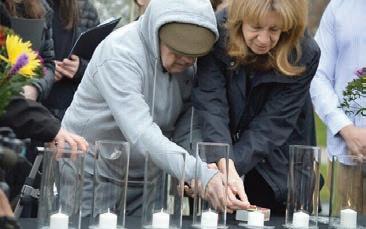
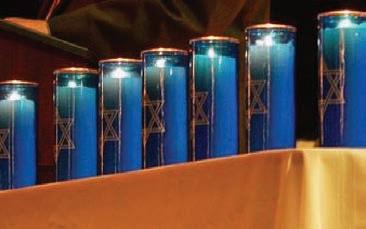
After three years of virtual programming due to COVID-related concerns, the Holocaust Center of Pittsburgh’s annual Yom Hashoah commemoration returns in person at Chatham University’s Campbell Memorial Chapel on April 18.

The Holocaust Center is “very pleased that the community can be together again for a very meaningful program that I know means so much to so many members of our community,” Christina Sahovey, the Holocaust Center’s operations manager, said.
With both in-person and virtual options available, Sahovey anticipates a large turnout.
This year’s program, she said, will have an intergenerational focus.
“We will be showing that, even when the survivors are gone, their stories will continue through their family members first and foremost, but also through the Center as well,” she said.
Helping convey the message, she continued, is a candle-lighting ceremony.
“We will have the candles for the 6 million, which has always been an integral part of the program, and we are planning to have those candles be lit by children and grandchildren,” she said. “We’re also expecting even a couple great-grandchildren of survivors to do this candle lighting.”
With the liberation of the camps occurring 78 years ago, the number of survivors continues to dwindle.
Times of Israel reported last year that 161,400 Holocaust survivors live in Israel, with an average age of 85.5. About 50,000
Holocaust survivors were living in the United States in 2022, according to The Atlanta Jewish Times.
Four local survivors will be featured during this year’s Yom Hashoah program thanks to a film created by Chatham University students Anna Betar and Sean McIntosh.
The film, which will be released in its fuller version on the Holocaust Center’s YouTube channel after the Yom Hashoah program, also will include an excerpted interview with Carole Zawatsky, CEO of the new Tree of Life nonprofit.
Zawatsky’s father, Sahovey said, was one of the liberators of the Mauthausen concentration camp.
Between August 1938 and May 1945, approximately 197,000 prisoners passed through the Mauthausen camp system. At least 95,000 prisoners — including more than 14,000 Jews — died there, according to the United States Holocaust Memorial Museum.
The April 18 event will be the Holocaust Center’s first public program since coming under the auspices of the Tree of Life nonprofit, which will serve, in part, as a memorial for the Pittsburgh synagogue shooting.
“It’s exciting,” Sahovey said. “Being part
of the reimagined Tree of Life helps us to cultivate a better and deeper understanding of the Holocaust to a larger audience, and how we can connect the past to counter antisemitism today.”
Another mechanism for bridging the past and present is music.
The commemoration will feature violinist David McCarroll, violinist Dylan Naroff, violist Tatjana Mead Chamis and cellist Angela Park. The quartet will play pieces by composers whose art was labeled Entartete (degenerate or decadent) by the German government in the years preceding World War II.
Composer Flavio Chamis, who worked with the musicians and the Holocaust Center to create a meaningful listening experience for attendees, said the program “brings three suppressed composers who are gradually reappearing in music programs and recordings around the world.”
Playing these composers’ pieces is “a regenerative deed,” he continued. For both the musicians and listeners, the performance is part of a long process of restoring this music “to where it rightfully belongs.”
Sahovey credited Chamis and the musicians
with helping to create a moving program that can be enjoyed both in person and online.
As in years past, thanks to the many portions of the program, the Yom Hashoah commemoration will provide a chance to “hear the stories of survivors who are with us and be inspired by their lives and what they’ve gone through, their resiliency,” she said.
The annual event, she continued, is about remembering and preparing for the future.
“Even though we hate to think about it, once the survivors are gone, their memories will continue to live on in their family members and others, who will continue to carry on their legacy, and carry on their story and their memories,” she said. PJC
Adam Reinherz can be reached at areinherz@pittsburghjewishchronicle.org.
5915 Beacon St., 5th Floor Pittsburgh, PA 15217
Main phone number: 412-687-1000
Subscriptions: 410-902-2300, ext. 1
SUBSCRIPTIONS subscriptions@pittsburghjewishchronicle. org
410-902-2300, ext. 1
TO ADVERTISE advertising@pittsburghjewishchronicle.org
724-713-8874
EDITORIAL DEPARTMENT
Email: newsdesk@pittsburghjewishchronicle.org
BOARD OF TRUSTEES
Evan H. Stein, Board Chair
Gayle R. Kraut, Secretary
Evan Indianer, Immediate Past Chair
Gail Childs, Dan Droz, Malke Steinfeld
Frank, Seth Glick, Tammy Hepps, Cátia Kossovsky, David Rush, Charles Saul
GENERAL COUNSEL
Stuart R. Kaplan, Esq.
Jim Busis, CEO and Publisher 412-228-4690 jbusis@pittsburghjewishchronicle.org
EDITORIAL
Toby Tabachnick, Editor 412-228-4577 ttabachnick@pittsburghjewishchronicle.org
Andy Gotlieb, Contributing Editor
Adam Reinherz, Staff Writer 412-687-1000 areinherz@pittsburghjewishchronicle.org
David Rullo, Staff Writer 412-687-1047 drullo@pittsburghjewishchronicle.org
ADVERTISING
Phil Durler, Senior Sales Associate 724-713-8874 pdurler@pittsburghjewishchronicle.org
PRODUCTION
Jeni Mann Tough
Production Manager
Carl Weigel
Art/Production Coordinator Subscriptions subscriptions@pittsburghjewishchronicle.org 410-902-2300, ext. 1
Published every Friday by the Pittsburgh Jewish Publication and Education Foundation 5915 Beacon St., 5th Floor Pittsburgh, PA 15217 Phone: 412-687-1000

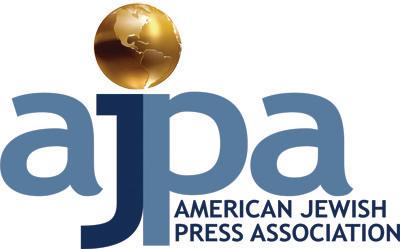
POSTMASTER:
Send address change to PITTSBURGH JEWISH CHRONICLE, 5915 BEACON ST., 5TH FLOOR PITTSBURGH, PA 15217
(PERIODICAL RATE POSTAGE PAID AT PITTSBURGH, PA AND AT ADDITIONAL MAILING OFFICES)
USPS 582-740
Manuscripts, letters, documents and photographs sent to the Pittsburgh Jewish Chronicle become the property of this publication, which is not responsible for the return or loss of such items.
The Pittsburgh Jewish Chronicle does not endorse the goods or services advertised or covered in its pages and makes no representation to the kashrut of food products and services in said advertising or articles. The publisher is not liable for damages if, for any reason whatsoever, he fails to publish an advertisement or for any error in an advertisement. Acceptance of advertisers and of ad copy is subject to the publisher’s approval. The Pittsburgh Jewish Chronicle is not responsible if ads violate applicable laws and the advertiser will indemnify, hold harmless and defend the Pittsburgh Jewish Chronicle from all claims made by governmental agencies and consumers for any reason based on ads appearing in the PittsburghJewish Chronicle

Seton Hill University’s National Catholic Center for Holocaust Education is doubling down on its Yom HaShoah commemoration this year.
Not only is the center marking the occasion with the premiere of a new 20-minute video featuring Holocaust survivor Sam Shear, but it also recently published the book “Holocaust Education Today: Confronting Extremism, Hate and Mass Atrocity Crimes.”

James Paharik, the director of the center, wrote the book forward, which is edited by American nun and Holocaust historian Carol Rittner, and is an outgrowth of the 2021 Ethel LeFrak Holocaust Education Conference, he explained.
“I designed the conference around the theme of growing extremism and how it relates to the Holocaust,” Paharik said. “We asked speakers to write essays based on their presentations. The book is a collection of those essays.”
The essays are grouped into larger categories, including: Holocaust Studies; Antisemitism, Fascism and Hate Crimes; Mass Atrocity Crimes and the Muslim World; and Teachings about the Gardelegen Massacre — a slaughter of more than 1,000 slave laborers perpetrated by the local population of the northern German town near the end of World War II.
Two Seton Hill professors who spoke at the conference are included among the more than 20 contributors to the collection. Emeritus history professor John C. Spurlock penned the essay “Teaching Gardelegen” and Associate Professor of Political Science Roni Kay Marie O’Dell wrote “Refugee and Migrant Rights: A Human Rights Perspective.”
“The book focuses on how we can learn from the Holocaust to help us understand the extremism and hatred we’re seeing around the world today,” Paharik said.
The Holocaust, he explained, is the lens that the book uses to examine not only antisemitism and other types of racism but various forms of hatred and extremism, including violence in Syria and the genocide of the Uyghur people in China.
Seton Hill, Paharik said, regularly publishes books with some connection to the university, unlike larger schools that have a wider focus.
“We’re not that kind of operation,” Paharik said, “but we do publish on a regular basis, and we always publish a book based on the conferences that we hold. That’s a regular feature of what we do.”
On April 16, the university will host its annual Yom HaShoah Holocaust

Remembrance Day and feature a video with survivor Sam Shear.
Shear will appear in person for the event at 2:30 p.m. at the University’s Cecilian Hall.
“He was in Auschwitz as a young person,” Paharik said. “I didn’t think he’d be able to come … but his son told me that he will, and I’m really excited about that.”
The video is part of the Eva Fleischner Oral History Project, which the center started in 2021. The university, Paharik said, works with WQED’s David H. Cohen and has produced eight 20-minute mini-documentaries recording the story of local Holocaust survivors.

Fleischner, Paharik said, was a Holocaust educator and a member of the center’s advisory board. She died in 2020.
The videos are intended to be used in elementary, middle and high schools.

“We’re working with some schools in our area,” Paharik said. “There’s a school in Latrobe called Christ the Divine Teacher. We’re slowly getting it out to the schools.” The videos, he said, can be viewed on the National Catholic Center for Holocaust Education YouTube channel.
Other survivors recorded for the series include Moshe Baran, Ruth Drescher, Albert Farhy, Solange Lebovitz, Judah Samet, Irene Skolnick and, soon, Oscar Singer.
Paharik said that battling hate and antisemitism isn’t only a Jewish issue, and he views the fight against extremism as an important one.
“We live in a time of growing antisemitism,” he said. “It is vital that Catholics join with our Jewish brothers and sisters to educate the community about the dangers of intolerance and injustice.” PJC
David Rullo can be reached at drullo@ pittsburghjewishchronicle.org.
www.pittsburghjewishchronicle.org

Most rabbis preach. This one wants you to change your diet, or at least consider what you eat. Rabbi Akiva Gersh, known online as the Vegan Rabbi, will share his message during an upcoming visit sponsored by Jewish Veg.

Although the April 23 program marks the Israeli rabbi and former New Yorker’s first time in Pittsburgh, his teachings are anything but new. For thousands of years, rabbinic literature, Jewish mysticism and philosophy have promoted the importance of veganism and vegetarianism, Gersh said.
Speaking with the Chronicle from his home in Pardes Hanna, Israel, Gersh, 47, cited the biblical precept of Tza’ar ba’alei chayim (the prohibition of causing unnecessary pain to animals), and said, “Jewish teachings don’t necessarily say to go vegan — obviously Judaism allows eating animals — but there are other laws dealing with animal welfare, the environment and human health that are seriously compromised, seriously sacrificed, through supporting the meat, dairy and egg industries of our world today.”
In a recent Instagram post, Gersh
noted Leviticus’ lengthy list of sacrifices and claimed that Judaism neither bans nor endorses massive animal consumption.
Instead, the Torah teaches, “Only in the Mishkan, and later in the Temple, was there any kind of obligation to eat meat,” he said. “The fact that God commanded ancient Jews to offer certain animal sacrifices in one very specific place and very specific ways doesn’t mean that today we are permitted to treat animals with cruelty, subjecting them to lives of pain and suffering in order to satisfy our own lusts and desires.”
Gersh largely relies on social media and a website (akivagersh.com) to disseminate ideas about Judaism, ethical treatment of animals and plant-based diets.
Perhaps surprisingly, Gersh’s page includes a sign-up to join the “first ever Jewish dating site specifically for vegan and vegetarian singles.”
He said his entry into matchmaking began nine months ago after several followers inquired whether the rabbi knew anyone who might be good for them.
“I kept hearing this from more and more people,” Gersh said. “I realized someone needs to help Jewish vegans and vegetarians specifically.”
But with so many dating sites and apps already in existence, what’s the purpose of another?
“Marriage is beautiful, wonderful and a
great blessing,” he said. “People recreate a life together, which is challenging enough. If your food choices aren’t aligned that could add another challenge to the relationship.”
The soon-to-launch site is another outgrowth of a COVID-19 world, he explained.
For 25 years, Gersh was involved in Jewish education. After graduating from Brown University with a bachelor’s in religious studies, he received a master’s in Jewish education from Yeshiva University and rabbinic ordination from Yeshivat Sulam Yaakov in Jerusalem.
“Part of my work was always dedicated to Jewish environmental teachings, Jewish ethics and animal welfare,” he said. “When COVID hit, I left my full-time job and moved online and did freelance Jewish education.”
He created the Vegan Rabbi site and used the platform to share teachings about animal welfare.
“People really took to it. People were supportive and wanted to learn more. They helped Vegan Rabbi grow and allow it to become things I didn’t expect it to become,” he said.
The site includes online courses, consulting and links to related videos and articles.
Now that pandemic-related travel restrictions have waned, Gersh is excited to take his message on the road. For nearly two weeks he’ll speak in synagogues and Hillels in Georgia, Florida, New Jersey, Minnesota, California and Pittsburgh.
There’s a general disparity between demographics, he said: “College students tend to be more open. They are more into exploring who they are and who they want to be.”
That was the case for Gersh. During his freshman year, the former New Yorker realized society’s negative impacts on the modern world. He became an environmental studies major and a vegetarian. One year later, he became vegan.
Around the same time that Gersh’s eating habits changed, so did his
He grew up in a “very typical secular suburban Jewish” setting in New City, New York, he said.
An introduction to Jewish environmental teachings in college, “inspired me to look at Judaism again.”
During the next several years, Gersh became observant and studied in a yeshiva in Tzfat, Israel. He returned to the U.S., obtained a master’s and eventually made his way back to Israel, where he lives with his wife and four children.
Jeffrey Spitz Cohan, executive director of Jewish Veg, described Gersh as an experienced and excellent Jewish educator, and “someone very important to learn from.”
Gersh said he was excited to visit Pittsburgh and learn from the community.
“What I love most about this work is the dialogue and the questions,” he said. “Even if people haven’t already gone vegetarian or vegan, it’s a topic that’s interesting to them.”
The conversations, which “come to life,” during discussions about animal welfare and the environment, reflect generations of learning, he explained.
“I feel like I am almost like a real estate agent. These are not my teachings. They’re the Jewish people’s. I’m just showing them off,” he said. “It’s important for me not to convince anyone of anything, but let the teachings speak for themselves.” Coming to Pittsburgh is a chance to introduce these ideas, “let people sit with them, ponder them, contemplate them and think about what changes they should make.”
The free April 23 event, held at Boyce Park in Plum Borough, will begin with kosher vegan hors d’oeuvres and mingling, followed by Gersh’s presentation.
Registration and details are available at jewishveg.org/pittsburgh. PJC
 By Adam Reinherz | Sta Writer
By Adam Reinherz | Sta Writer
Activist and scholar Shula Mola hopes to clear up misconceptions and help Pittsburghers better understand life in Israel.
With an address titled “Ethiopian Jews and the Formation of Black Identity in Israel,” Mola will deliver the annual Israel Nationality Room lecture on April 16 at the University of Pittsburgh’s Cathedral of Learning.
Her talk will highlight the emergence of Black identities in Israel and the “difference between Mizrahi Blackness and Ethiopian Blackness,” she told the Chronicle.
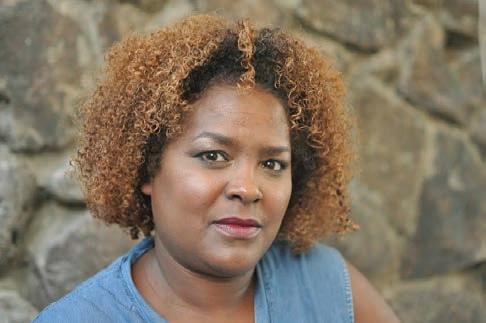
Mola earned her doctorate from Ben-Gurion University of the Negev, is a post-doctoral fellow at the Schusterman Center for Israel Studies, Near Eastern & Judaic Studies Department at Brandeis University and serves as a scholar-in-residence at the Hadassah-Brandeis Institute. Along with working on an oral history of the Ethiopian Jewish community, Mola researches social stratification, oppression and structural racism. She served as chairperson for the Association of Ethiopian Jews for more than a decade and has used her research as a tool to counter police brutality against Ethiopian Jews, she said.
Mola was named one of Israel’s 50 most influential women in 2022 by Globes, a Hebrewlanguage daily newspaper.
Mola, 50, said her Pittsburgh address will reflect both her research and personal experience.
“I didn’t know I’m Black before I got to Israel,” she said.
Once that realization dawned, Mola wanted to address the “social impact.”
As opposed to European Jews, who quickly gained access to the Jewish state, Ethiopian Jews, or “Beta Israel,” faced greater difficulties entering Israel during the 1970s and 1980s, Mola said.
“I will argue that the reason it took so long, and the reason that we paid a high price of death during our journey through Sudan, is because of our Blackness,” she said. “If we were not Black people, if we would come from other white countries — even not European, even Asian — the whole dynamic could be different.”
Mola, who came to Israel in 1984, said she hopes listeners can develop a fuller understanding of Blackness in Israel.
who came from Africa and Islamic countries.”
What’s important to know, Mola continued, is that “Mizrahi Blackness is more symbolic.”





Often, Mizrahi people can “pass,” she explained. “It’s not the case of Ethiopian Israelis, they cannot really pass.”
Mola said her talk will focus “on how this dynamic, this racial dynamic, impacts on our integration process.”
While shedding light on discrimination and racism in Israel, Mola said she hopes to address the source of racist ideology and correct many Americans’ misunderstandings. “Sometimes people get confused because racism is racism,” she said.

Racist practices in Israel can appear similar to racist practices in the States because the root is similar, she continued: “The source of racism is European — the European idea that came with the whole idea of colonization, that they took everywhere out of Europe and told themselves a story that they are the best.”
There is a difference, though, between racism in the U.S. and racism in Israel, Mola continued.
“We Ethiopian Jews, we returned to Jerusalem. This is how we see ourselves. This is a really different foundation of this encounter. We returned to our home, and we demand belonging,” she said. “From that point of view, this is different from really the ugly history of America regarding Black people, how we got here, how they live or die here.”
Mola said she’s excited to visit Pittsburgh and share insights about her life and research. The goal, she noted, is greater than mere academics.
When people begin realizing new things and gain understanding about other groups, “maybe we’ll have the opportunity to build up,” she said. “If we don’t get lost, we can build a better democracy.” PJC
Adam Reinherz can be reached at
Aconcertofhopeandreflectionfor HolocaustRemembranceDay
AniMa'amin (arr.Caldwell&Ivory)
AnneFrank:ALivingVoice byLindaTutasHaugen withdancersfromLaRocheUniversity PsalmTrilogy bySrulIrvingGlick

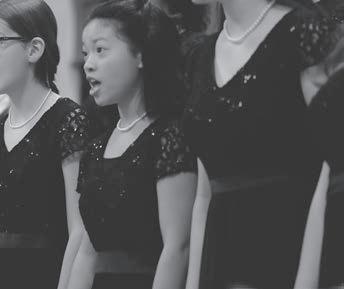

Sunday,April16at7pm
CongregationBethShalom

5915BeaconStreet,Pittsburgh,PA15217
FayeRubensteinWeissSanctuary
Student/Child: $5
Adults: $20 At-the-Door: $22
Patron: $50 for Premium Seating Package*
Tickets, info and COVID protocol at: BethShalomPgh.orgPittsburghGirlsChoir.com or


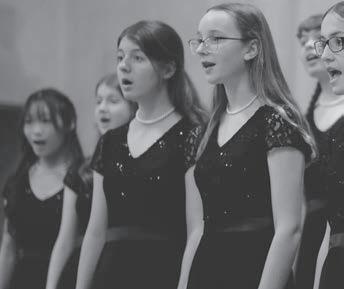
*In lieu of a post-show reception, a Patron
Open Camera Scan Code Buy Tickets

will include premium seating, a


SponsoredbyMen'sClubandSisterhood

Submit calendar items on the Chronicle’s website, pittsburghjewishchronicle.org. Submissions also will be included in print. Events will run in the print edition beginning one month prior to the date as space allows. The deadline for submissions is Friday, noon.
FRIDAY, APRIL 14
Welcome Shabbat with family and friends, music and prayer at Rodef Shalom Congregation’s Family Shabbat Join together for a Shabbat dinner and a Kabbalat Shabbat song session and service specially designed for families and kids of all ages. End the night with a sweet dessert. Dinner is $5 per person with a maximum of $25 per family. Registration required. 6 p.m. 4905 Fifth Ave. rodefshalom.org.
SATURDAY, APRIL 15 – SUNDAY, APRIL 16
Prime Stage Theatre presents the world premiere of “Perseverance,” a memoir of healing and renewal. Few visitors to the G&S Jewelry Store in Pittsburgh’s Squirrel Hill neighborhood during the 1960s and ’70s were aware that the cheerful proprietor, Melvin Goldman, had spent his teens enduring the horrors of Auschwitz before arriving as a penniless refugee in postwar Pittsburgh intent on reshaping his family’s destiny. 8 p.m. Adults $24/Students $19. 6 Allegheny Square E, Pittsburgh, PA 15212. primestage.com/education/perseverance.
SUNDAY, APRIL 16
“When Henry Silverstein Got Cold. How Terrible Enumerators Help Us Do Better Census Research with Tammy Hepps” is a collaboration between the Jewish Genealogy Society of Pittsburgh and the Rauh Jewish Archives at the Heinz History Center. Register online. The program is free for JGS-Pittsburgh members, as well as for the general public. 11 a.m. Heinz History Center, 1212 Smallman St. heinzhistorycenter.org/event/ jgs-pittsburgh-presents-when-henry-silverstein-got-cold.
Scholar and activist Dr. Shula Mola, named one of Israel’s 50 most influential women in 2022 by Globes newspaper, will deliver the annual lecture of the Israel Heritage Nationality Room and the University of Pittsburgh’s Jewish studies program. The title of her talk is “Becoming Visible: Ethiopian Jews and the Formation of Black Identity” in Israel. 4:30 p.m. Free. Cathedral of Learning, room 332.
The Pittsburgh Girls Choir and Congregation Beth Shalom’s Derekh program proudly present “The Beauty That Still Remains,” a concert of hope and reflection through song in commemoration of Holocaust Remembrance Day. PGC Chamber Choir will sing Linda Tutas Haugen’s “Anne Frank: A Living Voice,” featuring words directly from Anne Frank’s immortal diary. Rounding out the evening’s program: “Ani Ma’amin” (arr. Caldwell & Ivory) and “Psalm Trilogy” by Srul Irving Glick, with the participation of LaRoche University dancers. 7 p.m. 5915 Beacon Street. Tickets and info at bethshalompgh. org or pittsburghgirlschoir.com.
SUNDAY, APRIL 16, MAY 7, JUNE 4
Join the Jewish Federation of Greater Pittsburgh for an exciting Partnership2Gether online film club that brings together people from di erent Jewish communities for thought-provoking discussion based on di erent films. 1 p.m. jewishpgh.org/events/category/ partnership2gether.
SUNDAYS, APRIL 16–30
The 10 plagues. The Exodus. The splitting of the sea. The delivery of manna … Judaism has a long list of miracles. But do we really believe in miracles? How should rational minds think about the miraculous? In “Miracles - A Jewish Perspective,” Rabbi Danny Schi will consider the place of miracles in Judaism and how Jews might think about the miraculous today. 10 a.m. $55. Four sessions on Zoom. jewishpgh.org/event/ miracles-a-jewish-perspective.
SUNDAYS, APRIL 16 – DEC. 3
Join Chabad of Squirrel Hill for its Men’s Tefillin Club. Enjoy bagels, lox and tefillin on the first Sunday of the month. 8:30 a.m. chabadpgh.com.
SUNDAYS, APRIL 16 – DEC. 17
Join a lay-led online Parashah study group to discuss the week’s Torah portion. No Hebrew knowledge needed. The goal is to build community while deepening understanding of the text. 8:30 p.m. For more information, visit bethshalompgh.org.
MONDAY, APRIL 17
Women are invited to attend Chabad of Squirrel Hill’s Torah and Tea and explore the rich stories of our matriarchs with Rivky Herman. 7 p.m. $18. 1700 Beechwood Blvd. chabadpgh.com.
MONDAYS, APRIL 17 – MAY 15
Understanding the Torah and what it asks of us is one of the most important things a Jew can learn. But most Torah classes begin in Genesis and never finish the first book. If you want a comprehensive overview of the whole Torah, Torah 1 is the course for you. In the first year of this two-year Zoom course, Rabbi Danny Schi will teach Genesis, Exodus and the first half of Leviticus. In the second year, he will complete Leviticus and cover Numbers and Deuteronomy. $225. 9:30 a.m. foundation. jewishpgh.org/torah-1.
MONDAYS, APRIL 17–MAY 22
We Jews have an array of texts and making sense of them is not easy. In the six-part series “The Jewish Text Puzzle,” Rabbi Danny Schi will put the pieces of the “text puzzle” into one coherent picture, so that the place of Torah, Tanakh, Talmud, Midrash, Responsa and Kabbalah, as well as many other sources, can be easily understood. Schi will provide a historical context that will explain the significance of our various texts to Judaism. 7 p.m. $85. Rodef Shalom Congregation, 4905 Fifth Ave. jewishpgh.org/event/the-jewish-text-puzzle.
MONDAYS, APRIL 17 – DEC. 18
Join Congregation Beth Shalom for a weekly Talmud study. 9:15 a.m. For more information, visit bethshalompgh.org.
MONDAY, APRIL 17 – SUNDAY, MAY 7
The Healing Garden is an exhibit of drawings by members of the Allegheny Highlands Botanical Art Society. Free and open to the public. Rodef Shalom Congregation, 4905 Fifth Ave. rodefshalom.org.
TUESDAY, APRIL 18
Registration is now open for the Holocaust Center of Pittsburgh’s annual Yom HaShoah (Holocaust Remembrance Day) program – and the first in-person commemoration since 2019. Join them as they honor survivors, liberators, veterans, Righteous Among the Nations and their descendants, with a particular focus on stories and faces of heroism and resilience local to the Pittsburgh region. This year’s program will feature a film by Chatham University students focused on the question: What does Holocaust remembrance mean? Live music originally written by composers who were killed, persecuted or suppressed during the Shoah will be performed at this program by Pittsburgh Symphony Orchestra Concertmaster David McCarroll, PSO members Dylan Naro and Tatjana Mead Chamis, and professional cellist Angela Park. 7 p.m. hcofpgh.org/events.
TUESDAYS, APRIL 18, 25; MAY 2
Join Repair the World Pittsburgh and the 10.27 Healing Partnership for Chai, Chai V’Kayam, a series of community garden service-learning projects focused on sustaining ourselves, our communities and the earth through di cult times. As the 10.27 synagogue shooting trial approaches, we hope that these programs serve as an opportunity to come together for healing and collective action. 5:30 p.m. For more information, including events and locations, visit 1027healingpartnership.org/series/chai-chai-vkayamvolunteering-series.
TUESDAYS, APRIL 18 – MAY 9
In “Israel Literature as a Window to Israel Society,” Rabbi Danny Schi will facilitate an encounter with Israeli society through the pens of Israel’s leading writers, discovering voices that are original, contemporary and honest. This 10-part Melton course takes you on
a literary journey o ering a fresh examination of the ever-relevant issues faced by Israeli writers. Together, learners will read poetry and prose, gaining insights into the Jewish national psyche. 9:30 a.m. $160. jewishpgh. org/event/israeli-literature-as-a-window-to-israelisociety/2023-02-07.
TUESDAYS, APRIL 18 – DEC. 19
Join Temple Sinai for a weekly Talmud class with Rabbi Daniel Fellman. Noon. On site and online. For more information and for the Zoom link, contact Temple Sinai at 412-421-9715.
TUESDAYS, APRIL 18 – DEC. 26
Led by a certified yoga teacher, yoga class at Temple Sinai is open to all levels. No experience necessary. 16 and older. $15. Register at templesinaipgh.org.
WEDNESDAY, APRIL 19
Dealing compassionately and e ectively with individuals with mental illness is a challenge for Jewish communal professionals, and with the upcoming trial of the Pittsburgh synagogue shooter, these strategies are needed now more than ever. Although safety is everyone’s concern, unusual behavior is not necessarily a security risk and it’s important to know where to get help for someone who’s in distress. The Jewish Federation of Greater Pittsburgh, in collaboration with The Branch, JFCS and the 10/27 Healing Partnership, is hosting a lunch and learn program for Jewish communal professionals. 11:30 a.m. Registration required by April 12. 2000 Technology Drive. jewishpgh. org/event/compassionate-community-response.
Join the Squirrel Hill AARP for its April meeting. State Sen. Jay Costa will be the guest speaker and will discuss what is going on in Harrisburg and senior citizen issues. 1 p.m. Rodef Shalom Congregation, Falk Library. For further information contact Marcia Kramer at 412-656-5803.
Participate in weekly gentle yoga with a skilled and caring yoga instructor experienced in trauma-informed care. Experience an hour of gentle and calming yoga and learn yoga you can do at home and in stressful situations, including while seated. 3 p.m. 10.27 Healing Partnership suite inside the Squirrel Hill JCC. Facilitated by Susie Balcom and open to everyone. Register here: forms.gle/JQtgrutJyByaMM5K6.
WEDNESDAYS, APRIL 19 – MAY 24
In the 10-part Zoom course, “Sacks: To Heal a Fractured World,” Rabbi Danny Schi will explore “To Heal a Fractured World,” Rabbi Jonathan Sacks’ book on the nature of Jewish responsibility for the broader world. Students will be invited to read this pivotal book and to discuss its contents in order to arrive at a better understanding of the views of Rabbi Sacks on the goals and vision of Judaism. 9:30 a.m. $145 for all 10 sessions. jewishpgh.org/event/sacks-to-heal-a-fracturedworld/2023-02-2.
Registration is open for “Melton Core 1: Rhythms and Purposes of Jewish Living.” This 25-lesson course will take you through the year’s cycle — the life cycle traditions and practices that bind us together. Explore not just the what is and how is of Jewish living, but the why is that go with them. 7 p.m. $300 per person, per year (25 sessions), includes all books and materials. Virtual. foundation.jewishpgh.org/melton-core-1.
WEDNESDAYS, APRIL 19 – DEC. 20
Join AgeWell for an intergenerational family dynamics discussion group. Whether you have family harmony or strife, these discussions are going to be thought-provoking and helpful. Led by intergenerational specialist/ presenter and educator Audree Schall. Third Wednesday of each month. Free. 12:30 p.m. South Hills JCC.
WEDNESDAYS, APRIL 19 – DEC. 27
Bring the parashah alive and make it personally relevant and meaningful with Rabbi Mark Goodman in this weekly Parashah Discussion: Life & Text. 12:15 p.m. For more information, visit bethshalompgh.org/life-text.
Temple Sinai’s Rabbi Daniel Fellman presents a weekly Parshat/Torah portion class on site and online.
Call 412-421-9715 for more information and the Zoom link.
THURSDAYS, APRIL 20, 27
This bimonthly Refaeinu healing circle is led by Sara Stock Mayo, a spiritual leader, trained drama therapist, musician and poet. The space will be open to anyone who seeks to create community in shared healing rituals, Jewish texts and music, art making and embodied wellness practices. 10.27 Healing Partnership Suite, JCC of Greater Pittsburgh. 7 p.m. To register, visit forms. gle/pAJoXvNXSJ9Ks3ow9.
THURSDAYS, APRIL 20, 27
Many are concerned that democracy is under threat. That reality raises a critical question: What does Judaism have to say about democracy? What is the attitude of Judaism to majority rule, to defending minorities, to the separation of religion and state, to kings and courts?
In “Is Judaism Compatible with Democracy?” Rabbi Danny Schi will delve into what our texts have to say about the structure of government from a Jewish viewpoint. Co-sponsored and o ered in conjunction with Temple Sinai. $55. 9:30 a.m. Temple Sinai, 5505 Forbes Ave. jewishpgh.org/event/is-judaism-compatible-withdemocracy/2023-03-23.
THURSDAYS, APRIL 20, MAY 18
Classrooms Without Borders presents a post-film discussion of “Air Born” with Liat Eini-Netzer and Avi Ben-Hur. 3 p.m. eventbrite.com/e/post-film-discussionair-born-tickets-566782861797.
Join the JCC Bu alo for monthly virtual readings as part of the Jewish Poetry Series. Hosted by Philip Terman and Baruch November. Each month will feature di erent Jewish poets reading selections of poems that include but are not limited to Jewish themes, values and ideas. 7 p.m. Free and open to the community. jccbu alo. org/events/2023/02/09/arts-and-culture/virtual-jewishpoetry-reading-series.
THURSDAY, APRIL 20 –SUNDAY, APRIL 30
The JFilm Festival takes place April 20-30. The festival will showcase 24 Jewish-themed, independent feature films from around the world. Exclusive Film Schmooze discussions about some of the films will be featured. The festival will include the April 27 festival premiere of “Jack L. Warner: The Last Mogul.” For more information, visit FilmPittsburgh.org.
FRIDAY, APRIL 21
Do your kids like to sing and dance? Do you want them to get the Shabbat feeling? Are you looking for an informal, inviting way to teach your little ones about Shabbat and connect with other families? Join Temple Sinai for Tot Shabbat beginning at 5 p.m. with snacks, schmooze and fun. Service starts at 5:30 p.m. A complimentary and kid-friendly dinner will follow at 6 p.m. templesinaipgh.org.
SUNDAY, APRIL 23
Advanced Community Active Threat Training (CATT), a free three-hour course presented by the Jewish Federation of Greater Pittsburgh, addresses the mind of an active shooter, predator versus prey, situational awareness and survival mindset. It focuses on basic self-defense using techniques such as Krav Maga and is hands-on for those wishing to do so. It explores weapons awareness and disarming techniques. The last portion of the class builds on skills learned, adding more advanced defensive tactics to include team tactics and reality-based training. 1 p.m. Beth El Congregation of the South Hills, 1900 Cochran Road, 15220. jewishpgh.org/ event/advanced-community-active-threat-training-catt-2.
Jewish Veg welcomes Rabbi Akiva Gersh, aka The Vegan Rabbi, from Israel to Pittsburgh. A graduate of Brown and Yeshiva universities, Rabbi Gersh will show how our sacred texts and rabbinic tradition lead us to a plant-based diet. Kosher vegan hors d’oeuvres will be served. Free. 3 p.m. Boyce Park, Patrol Shelter, Plum Borough. jewishveg.org/Pittsburgh.
Please see Calendar, page 7
Thousands of worshipers from all three main Abrahamic religions converged on Jerusalem’s Old City on Sunday morning to celebrate their holidays during what the Israeli government has termed a “wave of terrorist attacks.”
A steady stream of Jews, the men wearing white prayer shawls around their shoulders, poured into the Old City under the gaze of hundreds of bulletproof vest-clad Border Police officers. The worshipers huddled near the Western Wall for Birkat Kohanim, the priestly blessing, of Passover.
Half a mile away, Muslims were entering the Al-Aqsa Mosque atop the Temple Mount, where several hundred worshipers had just agreed to leave after staying there overnight. The overnighters had holed up there following Saturday Ramadan prayers, which fell on Passover this year, in what many had feared could lead to a violent clash with police. On Sunday, several hundred Jewish visitors were allowed access to the Temple Mount. Their 30-minute, police-supervised tours, in groups of 20-30 pilgrims per
tour, ended without incident.
Meanwhile, Christian tourists back from the Sunrise Service at the Garden Tomb flooded the Old City’s alleyways, affording a taste of summer, when, during calm years, European and American tourists arrive en masse during high season, to the delight of the local souvenir shop owners.
This year, the Old City’s monotheistic trifecta took place in the shadow of a string of deadly attacks in Israel. On Saturday, an Italian tourist died and several Israelis were wounded in what police said was a terrorist car-ramming attack in Tel Aviv. On Friday, two sisters on their way with their mother to the resort city of Tiberias were shot dead in a terrorist attack in the Jordan Valley; their mother died from her wounds on Monday. Terrorists in Lebanon, Syria and the Gaza Strip launched dozens of rockets into Israel in recent days.
These and other events have prompted police to augment their already-heavy presence in the Old City. Clusters of five to 10 police officers hung around many corners, some of them behind metal fences, their hands on assault rifles and their eyes warily scanning the pedestrian traffic.
None of it made a deep impression on Eliran Hardon, a 38-year-old man who last month
relocated to Jerusalem from Petah Tikvah, and on Sunday attended the Birkat Kohanim for the first time to celebrate the move. “I feel elated. I know good things are about to happen to me and to the whole of Israel and I feel this much more strongly now,” said Hardon, who lives in Jerusalem’s French Hill neighborhood.
According to police, some 10,000 people attended the Birkat Kohanim, a similar turnout to previous years. But Efrat Elias, a supervisor for the Western Wall Heritage Foundation, a

government organization that manages the site, said attendance this year was lower. “There was a good number of people here, including many women, but overall it’s clear that the security situation has kept many away. Last year, you couldn’t move and this year you can negotiate your way forward even during the peak of the event,” she told The Times of Israel.
Edna Hananyah, who came for the Birkat
Please see Western Wall, page 10
—
The Jewish Healthcare Foundation has awarded the Pittsburgh Jewish Chronicle $25,000, representing the first payment on a grant of up to two years and $50,000 total. The funding will enable the Chronicle to engage healthcare reporting expertise and to support in-depth stories on issues that influence the well-being of all Pennsylvanians.
Calendar:
Continued from page 6
Join Rodef Shalom Congregation for “Understanding
Gen Z: How will the next generation shape our Jewish world?”, the 2023 Ruth and Bernard Levaur
Contemporary Lecture with guest speaker Rabbi Debbie Pine, campus support director at Hillel International. This event is free and open to the public. Seating is limited and reservations are encouraged. Reception to follow. 7:30 p.m. 4905 Fifth Ave. rodefshalom.org/levaur.
SUNDAYS, APRIL 23, MAY 21,
JUNE 11 AND SEPT. 10
Join Congregation Beth Shalom for “Toward Friendship and Discovery: Conversations Between Christians and Jews” as they read portions of “The Bible With and Without Jesus” together in small interfaith groups. The program is currently limited to 50 Jewish and 50 Christian participants. Childcare will be provided. All food o erings will be kosher or otherwise labeled for mutual comfort. Registration is required. $100/per person. BethShalomPgh.org/Interfaith-Program-2023.
“JHF is committed to supporting thoughtful, independent, and accurate reporting in the region, and we are proud to make this grant to proactively support your efforts,” JHF officials told the Chronicle.
JHF also approved a $300,000 one-year grant to the Pittsburgh Regional Health Initiative to support patient safety research and development in the region. The grant will further the second phase of the Regional Autonomous Patient Safety (RAPS) initiative.
RAPS kicked off in February with a launch
MONDAY, APRIL 24
Join the Jewish Federation of Greater Pittsburgh for its Yom HaZikaron ceremony honoring soldiers who gave their lives to defend the state of Israel, and victims of terror. 8 p.m. JCC Katz Performing Arts Center. jewishpgh.org/event/yom-hazikaron.
WEDNESDAY, APRIL 26
Taught by Professor David Harris, “Criminal Justice: From the Community Perspective,” a two-hour community course will support learners in their understanding of the U.S. criminal legal process, our systems of justice, and criminal trials. The information presented will help the community understand what goes on in the criminal courts, how trials work, what justice can look like and how we might attain it, and the special features and procedures of death penalty cases.
6:30 p.m. Free. JCC of the South Hills, 345 Kane Blvd. To register, visit 1027healingpartnership.org/event/criminaljustice-from-the-community-perspective-south-hills.
Classrooms Without Borders presents America and The Holocaust: A Series of Colloquies. April’s session will examine Hollywood, Nazism and the Nazis. Free. 4 p.m. cwbpgh.org/event/america-and-the-holocausta-series-of-colloquies-3/?mc_cid=5fef88abd5&mc_ eid=300cbb1627.
event co-hosted with the Pittsburgh Technology Council, hoping to establish Pittsburgh as a global hub for patient safety technology solutions.
The $300,000 grant will be used to create a $200,000 Collaborative Seed Grant Program to provide early-stage grants to Pittsburgh-based multidisciplinary R&D teams, start-ups or tech companies working toward solutions to prevent medical errors.
The Collaborative Seed Grant Program will begin accepting proposals on June 1. Funding will be awarded “based on the extent to which
SUNDAY, APRIL 30
On your mark. Get set. Go! Israel is celebrating 75 years of statehood this April. Pittsburgh will celebrate with a community “Yom Ha’atzmaut: Run/Walk/Roll for Israel at 75.” Free for nonracers. Craft tables, bounce house, Israeli line dancing, photo booth. Register to run/walk/roll and receive a race kit. 9:30 a.m.$12 per person/$5 for kids. Schenley Oval, 1 Overlook Drive. jewishpgh.org/event/run-walk-rollfor-israel-at-75.
Gather at Chabad of Squirrel Hill with other teen girls for a Teen Cooking Club and bake desserts for Our Giving Kitchen. 3:30 p.m. chabadpgh.com.
THURSDAYS, MAY 4; JUNE 1
Join local clergy from Jewish and Christian backgrounds for the Christian Jewish Dialogue, a monthly discussion exploring topics of similarities and di erences. Noon. Rodef Shalom Congregation. rodefshalom.org.
MONDAY, MAY 8
Dramatic changes in recent decades spur us to ask what role should Judaism play in this new era?
Join Federation Scholar Rabbi Danny Schi as he
the autonomous patient safety solution is aligned with what healthcare providers need to work in a safe environment and the extent to which it is aligned with federal funding opportunities,” JHF officials said.
“This next phase of RAPS is designed to seed more interest, solidify ongoing partnerships, spark collaborations for autonomous patient safety technologies, and secure additional funding for patient safety R&D in the region.” PJC
Toby Tabachnickengages with this question at a launch for his new book, “Judaism in a Digital Age,” at the 2023 Lev Society event. Dinner, desserts and drinks will be served, dietary laws observed. 5:30 p.m. $18 general admission/$54 with book included (while supplies last). RSVP by April 24. Rodef Shalom Congregation, 4905 Fifth Ave. jewishpgh.org/event/lev-society-judaismdigital-age.
THURSDAY, MAY 16; WEDNESDAY, MAY 31
UpStreet Pittsbugh presents “Supporting Kids with Anxiety: A Jewish Approach,” the Annual Alex Seed Memorial Lecture. Both sessions are open to anyone. May 16 is directed to educators; May 31 is directed to parents. In this free Zoom workshop, you’ll gain insight into how anxiety and other mental health challenges show up in various environments and impact both adults and children in those spaces; an understanding of hallmark unhealthy thinking patterns that show up frequently with depression and anxiety; and, Jewish texts and values that can be used as a lens for modeling and teaching healthier thinking habits. 7 p.m. upstreetpgh.org/alexseed. PJC
May4,2023
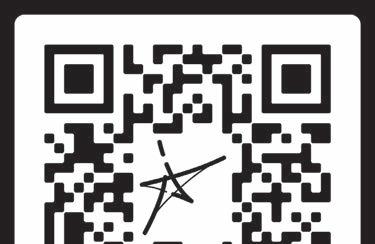
(350 FORBES AVENUE)


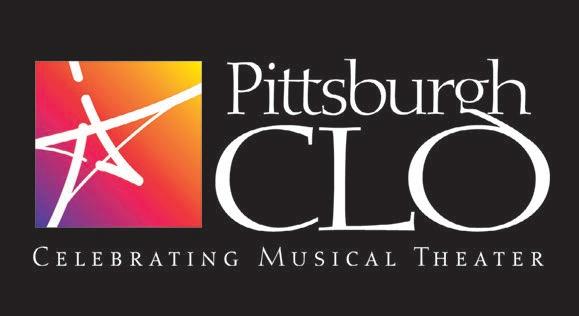
BeforehewasanEmmy-winningTVstar,MandyPatinkinwasalreadyaTony-winning Broadwaylegend. MandyPatinkininConcert:BEINGALIVE,presentstheacclaimed actor/singer/storytellerinhismostelectrifyingrole:concertperformer.“Mandy Patinkinisinthebusinessofshowstopping,”raves TheNewYorker,andthat’sexactly whathedoesinthispowerful,passionateeveningofsong. BEINGALIVE isacollection ofmanyofMandy’sfavoriteBroadwayandclassicAmericantunes.FromIrvingBerlinto StephenSondheim,fromColePortertoHarryChapin,MandyPatinkintakesyouona dazzlingmusicaljourneyyou’llneverforget.

Last surviving prosecutor of Nazis at Nuremberg dies at 103 Benjamin Ferencz, the last surviving member of the prosecuting team at the Nuremberg trials that convicted Nazi ringleaders for crimes against humanity, died on April 7 in Florida, JTA.org reported. He was 103.
Ferencz was 27 and a graduate of Harvard Law School when he was named as the chief prosecutor at the Einsatzgruppen Trial, in which 20 members of the SS mobile death squads were convicted of war crimes and crimes against humanity. Two others were convicted of membership in a criminal organization.
Slight and boyish looking, he is seen in newsreel footage of the trials speaking deliberately and passionately in an accent shaped by his upbringing in Manhattan. “Vengeance is not our goal, nor do we seek merely a just retribution,” he tells the tribunal. “We ask this court to affirm by international penal action, man’s right to live in peace and dignity, regardless of his race or creed. The case we present is a plea of humanity to law.”
Ferencz went on to play a key role on the team that negotiated the watershed 1952 reparations agreements under which West Germany agreed to pay $822 million to the state of Israel and to groups representing Holocaust survivors. Ferencz was featured in two recent documentaries about the Holocaust and its aftermath: Ken Burns’ PBS series, “The U.S. and the Holocaust,” and “Reckonings: The
First Reparations,” a 2022 film funded by the German government.
Finland to become first foreign buyer of Israel’s David’s Sling aerial defense system
Finland is set to become the first foreign buyer of Israel’s David’s Sling air defense system, the country’s defense minister announced on April 5, JNS.org reported.
The deal is worth some $347 million, and includes further options worth $237 million, according to a statement from the Finnish Defense Ministry.
The announcement came one day after the Nordic nation became the 31st member state of the North Atlantic Treaty Organization.
David’s Sling, developed by Rafael Advanced Defensive Systems together with U.S. defense giant Raytheon, is designed to intercept ballistic missiles, UAVs, enemy planes and other aerial threats.

Cyberattack crashes websites of several Israeli universities
A coordinated cyberattack took down the websites of major Israeli universities on April 4, JNS.org reported.
A hacker group calling itself “Anonymous Sudan” claimed responsibility for the attack on its Telegram account, stating that the “Israel education sector has been dropped because of what they did in Palestine.”
Institutions impacted by the attack include Tel Aviv University, the Hebrew University of Jerusalem, Ben-Gurion University of the
Items are provided by the Center for Israel Education (israeled.org), where you can find more details.
April 14, 1871 — German unification leads to emancipation
Germany is established as an empire under Prussia’s Wilhelm I, expanding the civil and political rights granted to Jews in some German states in 1869. But emancipation inspires more virulent antisemitism.
April 15, 1936 — Arab rebellion breaks out
An Arab uprising begins when 10 cars are attacked and three Jews are killed in what appears to be a robbery near Tulkarm. Violence lasts until 1939, and the British shift toward pro-Arab policies.
April 16, 2007 — Jewish writers conference is held
April 17, 1948 — Rabin leads relief convoy into Jerusalem Commanded by Yitzhak Rabin, a Harel Brigade convoy delivers supplies to Jewish residents of Jerusalem, who have been blockaded since February. Arab forces again cut off the city April 20.
April 18, 1955 — Albert Einstein dies
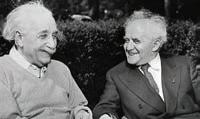
Negev in Beersheva, the Weizmann Institute of Science in Rehovot, the Open University of Israel and Reichman University in Herzliya.
“These are service-disrupting attacks — those that only bring down websites and do not steal information — and can be recovered from relatively easily. However, it can be assumed that these groups are trying to produce more significant attacks, including ransom attacks and data theft,” Check Point, an Israeli cybersecurity firm, said in a statement.
Amid criticism, Columbia University announces new research center in Tel Aviv Columbia University announced that it will launch a “Global Center” in Tel Aviv amid dueling letters from faculty supporting and opposing the decision, JTA.org reported.
The university’s Global Centers act as hubs for local scholars and researchers to work with the New York City school’s faculty, students and alumni to study and address a range of local and global issues. The center in Tel Aviv will join 10 others across the globe.
The Tel Aviv Global Center will enable the university “to connect with individuals and institutions, as well as with the alumni community in Israel, drawing them closer to the ongoing life of the University,” Columbia President Lee C. Bollinger said in a statement. He added that the center will focus on climate change, technology, entrepreneurship, arts, the humanities, biology, health and medicine.
Columbia already has ties to Tel Aviv through Tel Aviv University, with which it began a dual
degree program in 2019, despite also facing faculty and student objections.
For decades, Columbia has been the site of heated debate among both faculty and students over the Israeli-Palestinian conflict.
Man pleads guilty to hate crime in 2021 arson that damaged Texas synagogue
The man charged with setting fire to a synagogue in Austin, Texas, in 2021 has pleaded guilty to two federal charges, including the destruction of religious property, a hate crime, JTA.org reported.
The board of directors at Congregation Beth Israel endorsed the plea deal, telling members that the agreement had no bearing on Franklin Barrett Sechriest’s ultimate sentence and noting that a trial could deepen their trauma.
The sanctuary, historic front doors and stained glass windows at the Reform synagogue were damaged in the October 2021 fire that Sechriest, during a plea hearing on April 6, admitted to setting. The fire was extinguished after a passing motorist alerted authorities; Sechriest, then 18, was arrested 10 days after the fire after being identified in surveillance footage.
Under the terms of the plea deal, Sechriest pleaded guilty to arson and to the hate crime, but prosecutors dropped a third charge, use of a fire to commit a felony. He faces up to 20 years in prison when he is sentenced at a separate hearing, scheduled for June 23. PJC
Writers Eva Hoffman (left), Ruth Fainstein and Jonathan Rosen meet during the Kisufim conference on April 18, 2007.
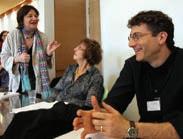
Organized by Aharon Applefeld and Natan Sharansky, the first Kisufim conference for Jewish writers around the world opens in Jerusalem. Sessions are held in 10 languages.
second president.
Physicist Albert Einstein, who declined an offer to serve as Israel’s president in 1952, dies at 76. He was drawn to Zionism after World War I, raised money for Hebrew University and first visited the Land of Israel in 1923.
April 19, 1977 — Carter team meets on Middle East President Jimmy Carter’s foreign policy team agrees on five major points for the Middle East, including a regional peace conference by the end of the year, but fails to consider that Likud might win May’s election.
April 20, 1799 — Napoleon backs Jewish claim to Palestine While laying siege to Turkish-held Acre, Napoleon issues a proclamation offering to give Palestine to the Jewish nation if France captures it. The proclamation fails to win the support of Palestine’s Jews. PJC
Choir:
Continued from page 1
hard to connect to Frank’s words, first published nearly 80 years ago. The Fox Chapel High School senior has been a choir member since she was in first grade.
Meyer feels a connection to Frank’s words as a young woman and, since studying the Holocaust in school, that bond has grown.
“I cry every single time I sing it,” Meyer said. “The selected texts give you insight into some of the most beautiful and insightful things in her mind.”
Oakland Catholic High School senior and choir member Alexandra Price first sang the piece while she was studying the Holocaust.
“We were reading Anne Frank’s diary at the time, so it just all lined up … but then singing
Bisno:
Continued from page 1
Through C4IC, Bisno plans “to focus on how the wisdom traditions — cross-religions and cross-culturally — can help us ask the most important questions or create the conversations that we need to be having now in order to have faith in the future.”
The rabbi envisions his new center will reach diverse religious denominations throughout Pittsburgh with lectures and other programs “about issues related to the intersection of faith and wisdom and modern society,” he said.
Bisno hopes to eventually partner with academic and corporate entities “to explore the challenges we face in the modern age that our wisdom traditions can help us better appreciate,” he said, and to launch a speaker series focusing on topics related to spirituality.
The future of religion, as Bisno sees it, will be “interfaith and collaborative.” While various denominations will still exist, he predicts, they will be secondary to broader spiritual work.
“There will still be synagogues and churches and mosques on various street corners, but fewer of them,” Bisno said. “Our citizenry, our friends and neighbors, and we ourselves, have now embraced a pluralistic understanding — an inclusive understanding, a broader understanding — of the communities in which we live. That requires us to enter into dialogue and to collaborate.”
This collaborative nature of religion does not necessarily portend the dilution of Judaism, Bisno said. Rather, it is “the next cycle.”
“The genius of Judaism,” Bisno said, “is that it has been adaptable. And in the 21st century,
Western Wall:
the words with music, I think, gave me more of an artistic connection, so I can express it physically and emotionally,” Price said.
Meyer credited Barnard with helping the choir members understand what it was like for Frank during the time she wrote her diary.
“She’ll say, ‘What do you think this means? What do you think she was going through?’ There are points where the silence is eating away at her, and we’ll discuss what that means,” Meyer said.
The choir will perform the piece, which Barnard called “difficult and nuanced,” with a string quartet.
Instrumentation, Price said, brings an added dimension to the work.
“There’s a lot of fluctuation in dynamics and tension,” she said.
Noting that the concert is titled “The
we have new realities with regard to who we are as individuals and who we are as the Jewish people in the world.”
To meet the spiritual challenges of the 21st century, people of faith must determine their priorities in a world where “more emphasis is placed on the commonalities and the universal,” he said.
And actions are more important than doctrines.
“I firmly hold that what we believe is inter esting, but it’s what our beliefs lead us to do that is significant,” Bisno said. “The other foundational premise I have with regard to all of this is that you don’t have to be wrong for me to be right.”
Bisno’s C4IC is not the first Jewish organiza tion in Pittsburgh focused on interfaith dialogue and cooperation. The Jewish Federation of Greater Pittsburgh’s Community Relations Council works within and beyond the Jewish community to develop relationships, and the Jewish Community Center’s Center for Loving Kindness aims to build “community connectivity” through the sharing of resources and discussion, according to its website.
Bisno’s new nonprofit is different, he said.
“We’re fortunate to have a number of organizations in town that are focused on how we live with each other how we how we can better understand each other,” he said. “My vision for this center is that, while it appreciates the importance of us understanding each other, what I’m really interested in is using our shared wisdom traditions to inform the questions we ask and the decisions we make.”
The C4IC, he hopes, will bring together thought leaders from across disciplines, institutions and faiths to dialogue on issues of significance to humanity.
hands to receive the blessing.
Beauty That Still Remains,” Barnard said she wants those directly affected by the Holocaust to feel they are being honored, especially since it takes place the night before Yom HaShoah. She also wants to show that the younger generation will not forget the horror of the Holocaust.
“In a more general sense, I want people to hear hope because her diaries are flooded with hope,” Barnard said. “We go from the Anne Frank piece to three psalms. So, there is a lot of hope.”
Price said that feeling of hope is buttressed by the words sung.
“One of the last phrases that we sing out of the seven pieces is, ‘And yet, when I look up at the sky, I somehow feel that everything will change for the better. I must hold onto my ideals and perhaps one day, I will be able
to realize them.’ We come out of this depression and complete and utter hopelessness in humanity; but instead, we can look at the bright side and know things will change if we try to change them,” she said.
“[Frank] teaches us that,” Meyer said. “She’s young but she had so much maturity. Reading that — as a young person trying to figure out what’s next in life — is just so interesting because we hear her talking about her ideals and hopes.”
“The Beauty That Still Remains” will be performed on Sunday, April 16 at 7 p.m. at Congregation Beth Shalom. Tickets can be purchased at bethshalompgh.org/ holocaustremembranceconcert. PJC
David Rullo can be reached at drullo@ pittsburghjewishchronicle.org.
Congregation for High Holiday services since 2019 and collaborated on projects with the Islamic Center of Pittsburgh and other local Christian churches.
Calvary will provide the space for C4IC programming, as well as infrastructure and some of the funding, Jensen said.
“Our role is to be that supportive neighbor and friend,” he added.
Bisno, Jensen said, has the experience and character to lead this new interfaith endeavor.
“He has the energy, the creativity, the vision for all of that, and he has the right personality,” Jensen said. “He’s a more upfront person, and I love to work behind the scenes a little bit, to be supportive. And I think that works very well as a combination.
“This is [Bisno’s] creation, to bring about the Center for Interfaith Collaboration,” Jensen continued. “But it’s something that we can help do together.”
Continued from page 7
Kohanim with her husband, Yitzhak, concurred sadly. “It’s unfortunate but the terrorists have kept many people away. Jews should be coming here no matter what.”
During the Birkat Kohanim, the women, in their separate section of the Western Wall area, turn away from the men during some parts of the prayer, to avoid seeing the Kohanim, members of what used to be the Jewish People’s priestly caste, who gave the prayer its name. In the men’s section, descendants of Kohanim bless the rest of the people, who raise their
An iconic moment of reconnection by thousands of people to customs predating the destruction of the Temple in Jerusalem, the Birkat Kohanim takes place twice a year, on Passover and Sukkot.
In recent years, a growing number of Jews have been combining the Birkat Kohanim with another custom with origins in the Temple: Performing a pilgrimage to see a great rabbi. Known as “kabalat pnei rabo,” Hebrew for “greeting one’s rabbi,” it was introduced following the Temple’s destruction as part of a vision “that sought to transfer the now-ruined place of sanctity, the Temple, onto the
Changing Face of Faith,” features Rabbi Jeffrey Salkin, Imam Abdullah Antepli, Executive Minister of Christian Associates of Southwest Pennsylvania Rev. Liddy Barlow and Calvary’s Rev. Jonathon Jensen. Salkin and Antepli have dialogued together in other cities as well.
The discussion will be “far-ranging,” Bisno said, and will include the “challenges of remaining faithful and the challenges in society today coming out of the pandemic.”
“We’re going to talk, among other things, about what we can learn from each other’s experience and the importance of making room for the other’s experience.”
The work Bisno is doing with C4IC is consistent with the mission of Calvary, Jensen said, as the church is highly engaged in outreach with other faiths and institutions. It has lent its sanctuary to Tree of Life
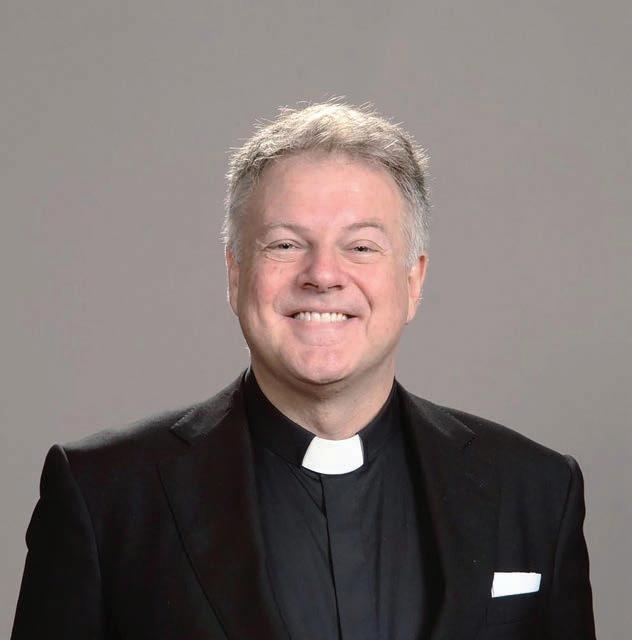
great sages, the great rabbis of Judaism,” said Zvi Mark, a scholar of Hasidic movements at Bar-Ilan University.
It’s part of the reason why Hardon, the recent arrival to Jerusalem, was moved by the presence of the Ashkenazi Chief Rabbi of Israel, David Lau, on a balcony overlooking the Western Wall during the Birkat Kohanim. “You feel part of something great, together with the greats,” Hardon said.
One observer of the custom of greeting one’s rabbi, 42-year-old Ohad David of Pisgat Ze’ev, skipped some of the Birkat Kohanim altogether to see Rabbi Mordechai Sheiberger, the leader of David’s Or HaGanuz Orthodox
He and Bisno are co-teaching a class on the parables of Jesus, which attracts between 40 and 60 people each week. The students are mostly Christians, but several Jews attend as well, Jensen said.
“I have learned a great deal more about these stories I’ve taught for years and years, thinking about them and hearing about them and learning about them from a Jewish perspective,” Jensen said. “And [Bisno] has learned a lot because the stories are mostly new to him. And then all of us as a community, Jews and Christians together, learn from each other.”
Aiming to build on that interfaith momentum, Bisno and Jensen will co-lead a pilgrimage to Israel in October. PJC
Toby Tabachnick can be reached at ttabachnick@pittsburghjewishchronicle.org.
Jewish community. “The Birkat Kohanim is a mass event. It has its place. But when you go see a rabbi who’s great, you get much closer to sanctity,” said David after visiting with seven other followers at the rabbi’s home in the Jewish Quarter of Jerusalem
David, a father of five, left his two oldest sons, who were supposed to accompany him to Jerusalem, back home because of the security situation.
“There’s no question of abandoning the custom because of a few terror attacks, but there’s no need to pretend the circumstances are ideal for bringing children to the Old City right now,” David, 42, said. PJC




Summer Lee, a progressive Democrat who represents Pennsylvania’s 12th District — which includes Pittsburgh and several surrounding suburbs — has spoken to a myriad of media outlets, including KDKA, NPR, Teen Vogue, Black Pittsburgh, MSNBC and Rolling Stone. Her staff, though, has not made her available for an interview with the Chronicle despite numerous requests after her Democratic primary win last May and following her election as a United States representative in November.
Lee’s office did not respond at all to most of those requests.
This should concern our readers because Lee represents a significant percentage of the Jews in greater Pittsburgh, including those in Squirrel Hill.
In contrast, Lee’s predecessor, Democrat Mike Doyle (who, from 1995 to 2023, represented District 18, which covered much of the same territory as the new District 12) was generous with his time when it came to interview requests from the Chronicle, as our other representatives have been.
The Chronicle wants to talk with Lee because it’s our mission to inform Pittsburgh’s Jewish community about the issues they care about, including Israel.
About a year before the Democratic primary, in a tweet about the May 2021 conflict between Gaza and Israel, Lee criticized U.S. politicians for using the refrain “Israel has the right to defend
itself” in response “to undeniable atrocities on a marginalized pop.” Then, at a town hall event organized by the Jewish Federation of Greater Pittsburgh’s Community Relations Council during the primary, Lee said she didn’t know if Israel is an apartheid state.
“I don’t necessarily know the answer to that,” she said. “I don’t know that I am as well-versed in the intricacies of this.”
Lee said at that event that aid to Israel should be conditioned on progress for peace with the Palestinians. She also said that while she is not involved with the BDS movement against Israel, she is concerned by efforts to “criminalize a tactic that is rooted in peaceful protest.”
We wanted to ask Lee to clarify her positions on Israel before the general election. After weeks of being ignored, Lee’s campaign manager finally responded to the Chronicle, but said that although she would be scheduling interviews with other media outlets, she could not commit to an interview with us. We asked that our place be held in the queue for an interview, but were told that was not possible because other requests coming in after ours might take precedence. We were, however, told that Lee would speak with us after the election.
That still hasn’t happened, despite our repeated requests.
Late last month, Lee joined “Squad” members Alexandria Ocasio-Cortez and Jamaal Bowman of New York, Ilhan Omar of Minnesota, Ayanna
Pressley of Massachusetts, Cori Bush of Missouri and Rashida Tlaib of Michigan in a letter to the Biden administration urging a change in U.S. policy toward Israel. We reached out to Lee to question her about the letter, but her communications manager first tabled our request, then did not respond at all to our follow-up request.
On April 6, the first day of Passover, Lee posted an inflammatory Al Jazeera video on Twitter, ostensibly depicting Israeli forces beating Palestinians who were barricaded inside the Al-Aqsa Mosque in Jerusalem. Lee tweeted above the video clip: “This is unjustifiable violence against Muslim worshippers whose only crime was praying during Ramadan. How much longer are we going to let political bullies silence us from calling out atrocities? US taxpayers should not be paying for any of this.”
That video was misleading, Laura Cherner, director of the Federation’s Community Relations Council, said.
“It is disappointing to see such a reductive video widely circulated online,” Cherner wrote in an email to the Chronicle. “What the video does not show are the extremists who had barricaded inside Al Aqsa with stockpiled rocks, fireworks and explosives. As they have done for the past several years, extremists have taken advantage of the sensitive time when Ramadan and Passover coincide to further escalate an already tense situation.
“Muslims deserve and have the right to
Our kids rushed into the communal dining room. “We just saw a bunch of rockets get intercepted mid-air near the pool.” No sooner did our older daughter finish those words when we heard several massive booms in close succession. We quickly made our way outside along with most of the hotel guests. With the next booms we felt the reverberations as the buildings shook and the windows rattled. The hotel manager appeared and calmly, but firmly, directed us toward the steps of the bomb shelter. Just that morning, I’d sat outside there with my book and cup of coffee, appreciating nature’s serenity and the ample amenities of this Ma’alot hotel. I made note of the miklat (shelter) entrance 25 feet away and wondered if the space was ever used for its intended purpose.
Now I know for sure.
On the first day of Passover, cities in northern Israel were attacked by a barrage of 34 rockets from Lebanon that resulted in three reported injuries and other property damage. Passover is the holiday when Jewish people around the world celebrate the redemption of the ancient Israelites from slavery in Egypt and liberation from the tyranny of Pharaoh. It is a holiday that is marked with the retelling of the story
through the Haggadah at the Passover seder, along with eating matzah and other symbolic foods, as well as avoiding forbidden leavened wheat products. In the days when the Temple stood, Passover was also a pilgrimage holiday. But what stood out to me most on this holiday was the joyous coming together of families for a multi-generational experience celebrating our freedom. Only at that moment I noted the number of grandparents and great-grandparents being shepherded along with tiny children.
We sent our teenage children down the stairs to safety. My spouse and I looked at each other in disbelief. It’s not that we don’t expect violence. In the United States, we live in constant wariness because of the steady threats of antisemitism. We know of the violent and deadly attacks on our North American synagogues, institutions and businesses, and of harassment in the streets. We see the graffiti — the literal writing on the wall — and endure hateful rhetoric. The statistics show a sharp uptick of antisemitic incidents. And yet, as I write these words many hours later, I’m still unpacking my feelings. As someone who has lived in North America and watched the news about terrorist attacks in Israel — even though I have been here during tense and terrorfilled times — the feelings evoked by this attack while having to seek shelter are unlike anything I have ever experienced.
We heard and felt more booms.
I descended into the shelter to check on our children. The carpeted steps led the way into crowded rooms. Drinks of water were
handed out. Elderly people were given chairs to sit in. Many adults stood, watching as their children played. Some children cried in their parents’ arms. Our own children were sitting with their friends and calming their young cousins. Overall, the space retained a nervous energy.
When my kids gave me the thumbs-up, I made my way back up the stairs. By that point, fighter jets had been deployed and the air was still. Eventually we were given the all-clear. Guests and staff ascended from the shelter and everyone returned to their previously interrupted activities, still a little rattled, but none the worse for the wear.
Our holiday joy was disrupted for just one afternoon, but I know we will be processing, talking and thinking about this day for many, many days to come.
Israel is important to us as a land, a place to fulfill religious obligations, a place of refuge and rescue, and for my spouse and me, it is our home away from home. It is a place where our children live, where we have numerous relatives and friends — and friends who are extended family — whose health and safety are paramount.
Too often, when Jews are attacked in Israel, it is chalked up to being part of the realities of a far-away geopolitical conflict. With these experiences behind me, my certainty is reconfirmed that lobbing rockets into Israeli Jewish neighborhoods is nothing short of genocidal. And the same is true when a car is rammed at a group of people at a promenade or bus stop, and when there is a targeted shooting of a passing car or near a synagogue. These acts
worship peacefully during Ramadan, just as Jews deserve the right to peacefully observe Passover. Misleading videos such as this do nothing to improve the lives of Palestinians, they only perpetuate misinformation and the demonization of Israel.”
Whatever views you have about Israel, you should be concerned that Lee won’t speak with the Chronicle. You have a right to know what, if anything, she has done to increase her knowledge of the Israeli/Palestinian conflict. You have a right to know why she signed that letter to the Biden administration, and if she did any independent research into its claims against Israel or the positions of her co-signors, some of whom have made virulent anti-Israel statements. You have a right to know how she will vote on upcoming bills related to the Jewish state and its ability to defend itself. How concerned is she about the safety of Israelis and Jews in general?
If Lee wants to serve and be engaged with Pittsburgh’s Jewish community, she needs to speak with the Chronicle, the only media outlet solely dedicated to informing, educating and connecting that community.
Jewish Pittsburghers may wonder: If Lee had time to speak with Teen Vogue, why doesn’t she have time for us?
In a democracy, an elected official has the solemn responsibility to talk to the media and respond to her constituents — even those who are Jewish. PJC
of terror must never be legitimized because of politics or geography. These incidents are no different from attacks and mass shootings in American synagogues or markets. Jewish people everywhere — including in Israel — should be able to live free of fear.
To be sure, this is a complicated moment in Israel’s political landscape — one that I won’t belabor here. But these repeated attempts to murder Jews in Israel, go well beyond being critical of Israel and its policies.
And in case you thought otherwise, the way people talk about and minimize the value of Jewish lives in Israel helps to incite violence against Jews around the world.
There are times when I struggle to resonate with the opening words of the maggid portion of the Passover seder. But this year I think I finally understand the aspiration behind these passages:
“This is the bread of affliction that our ancestors ate in the land of Egypt. All those who are hungry, let them enter and eat. All who are in need, let them come celebrate the Passover. Now we are here. Next year in the land of Israel. This year we are enslaved. Next year we will be free.”
Indeed. May we all live free from the shackles of fear brought on by hate and violence.
Amen. PJC
Daphne Lazar Price is the executive director of the Jewish Orthodox Feminist Alliance (JOFA) and an adjunct professor of Jewish Law at Georgetown University Law Center. This first appeared on The Times of Israel.
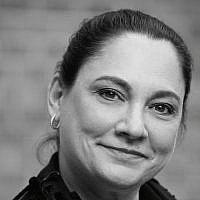
Last week, the Chronicle asked its readers in an electronic poll the following question: “Do you think the death penalty should be abolished?” Of the 244 people who responded, 54% said no; 39% said yes; and 7% said they were not sure. Comments were submitted by 58 people. A few follow.
We need it more now than ever. We also need a governor who is not afraid to use it.
Sentence the offender to life without the possibility of parole. He or she should spend the rest of their natural life in mental anguish contemplating what they did.
While I understand the ramifications of having the death penalty and the unforgivable and repulsive nature of innocent people being executed, I feel it is needed for the most heinous of crimes.
The major argument against the death penalty isn’t moral but economic. It is never carried out here in Pennsylvania, but is hugely expensive to house death row inmates and go through the endless series of legal appeals and court filings. Stop the charade and face current reality.
The death penalty (legally sanctioned killing) is immoral, debases us as a society and has no deterrent effect. The vast majority of civilized countries have abolished it. Moreover, it has been proven that the cost of a death penalty trial and ensuing appeals exceeds the cost of life in prison.
Last week’s front-page story about Summer Lee’s recently announced stance against Israel was informative but certainly not any surprise to this avid reader (a moderate Democrat who is extremely pro-Israel). Does anyone else feel about as non-nonplussed as I that this far too local liberal Democrat — “freshman” legislator with all of three months experience — joined up with the overly-woke Squad? Our closest democratic ally should be permitted to protect itself from its enemies as it chooses and not be denounced by a still-wet-behindthe-ears politician.
Rep. Lee’s anti-Jewish bent was almost as predictable as when Supreme Court Justices Cavanaugh and Coney Barrett (who claimed to be pro-stare decisis and supposedly openminded about abortion rights in order to hoodwink the Senate Judiciary Committee) blatantly ignored precedent to undermine our rule of law, overrule the longstanding Roe v. Wade and abhorrently put the lives of innocent American women at risk.
Jeff Pollock, Esq. PittsburghAn April 8 news article in the Chronicle, from the Jewish Telegraphic Agency (“Car ramming and shooting on Tel Aviv boardwalk kills 1 and wounds 4,” online), reported that “gunmen” murdered an Israeli mother and her two daughters in the Jordan Valley last week, and an “attacker” drove his car into a crowd on Tel Aviv’s boardwalk, murdering a tourist. Why employ such euphemisms, instead of stating the fact that in both cases, the killer was a terrorist? These attacks obviously were not personal quarrels, robberies or road rage. In each case, a Palestinian Arab murdered innocent people because he believed they were Jews. If an antisemite who guns down a Jewish woman and her daughters at close range, or plows his car into a crowd of civilians in Tel Aviv, doesn’t deserve to be called a terrorist, then one must ask: Is there any act of violence by a Palestinian Arab that would result in our news media calling him a terrorist — and if so, what kind of act would that be?
Stephen M. Flatow Long Branch, New JerseyI think there are some cases that are so terrible that the perpetrator should be put to death.
It’s barbaric! It should be against the law!
Its only benefit is satisfying — or attempting to satisfy — our collective thirst for retribution, and governments should not be in the retribution business.
No person nor state should be killing another human. If you want revenge, you are no better than the convicted.
The death penalty should not be abolished, but the standard of evidence should be higher relative to imprisonment.
I’ll agree to abolish the death penalty when the Second Amendment is revoked.
It is amazing to me the extent to which the opponents of capital punishment have over the years been able to construct almost impenetrable thickets of legal procedural hurdles designed to prevent, through incessant delays, the actual execution of convicted murderers, the conceptual and philosophical
underpinnings of which can be readily found in the Talmud.
There needs to be some deterrent — but it should be used rarely, and the standard for using it should be “We’re damn sure the person did the crime.”
I think it should be limited to mass crimes (three or more deaths) and to crimes against humanity.
Not only should it not be abolished, the penalty should be adjudicated swiftly.
I believe the only people who should be put to death are those guilty of the most heinous crimes, such as serial murderers.
Killing doesn’t stop killing! PJC
Toby TabachnickChronicle weekly poll question: How concerned are you with the recent attacks on Israelis coming from Palestinians, Lebanon, Syria and Iran? Go to pittsburghjewishchronicle.org to respond. PJC
The Pittsburgh Jewish Chronicle invites you to join the Chronicle Book Club for its April 16 discussion of “Koshersoul” by chef Michael W. Twitty. The memoir was named Jewish Book of Year for 2022 by the Jewish Book Council.
From the Jewish Book Council: “Twitty’s book is a record of lives lived and meals cooked. Through a combination of interviews, oral histories, personal anecdotes, recipes, history, and advice, he details the ways that Black and Jewish food traditions perceived to be disparate have overlapped, influenced, and mirrored one another throughout history. He writes of how diasporic living, migration, oppression, marginalization, and movement shapes food.”
Your hosts:
Toby Tabachnick, editor of the Chronicle
David Rullo, Chronicle staff writer
How and when:
We will meet on Zoom on Sunday, April 16, at noon.
What to do
Buy: “Koshersoul.” It is available at area Barnes & Noble stores and from online retailers, including Amazon and Barnes & Noble. Several copies are available

through the Carnegie Library system.
Email: Contact us at drullo@ pittsburghjewishchronicle.org, and write “Chronicle Book Club” in the subject line. We will send you a Zoom link for the discussion meeting.
Happy reading! PJC
Toby Tabachnick

Ihad not heard of preserved lemons — a common ingredient in Mediterranean recipes — before I delved into authentic Sephardic cooking, but they are now a staple in my kitchen. While we typically use the juice of a lemon to flavor food, we use the rind of preserved lemons after they’ve been pickled.


I’ve wanted to publish some recipes including this fantastic ingredient, but preserved lemons are not readily found at stores in my area. Since I prefer to make them at home, I thought that this would be a great recipe to share. Homemade always tastes better than store-bought, and preserved lemons are easy and much more affordable to make at home.
The taste is subtle but bright and adds a beautiful flavor to fish, chicken and all sorts of salads and sides. Preserved lemons are especially common in North African foods like tagine, Moroccan chicken with olives and fricassee. You only need a few ingredients and a clean glass jar for canning.
6 lemons, divided: 3 per jar and extra for lemon juice
Coarse kosher salt, about ¼ cup
1 bay leaf
5 peppercorns
Your jars must be sanitized before preparation. You can run Mason jars and lids through a dishwasher cycle or immerse the jar and lid in boiling water. I typically use the 1½-cup wide-mouth Mason jars, but you can use a different shape jar if that’s what you have on hand.
Scrub the lemons well with a soft brush or cloth under warm water to release any dirt or pesticides before patting them dry. If the dried end of the stem is still attached to the lemon, take a sharp knife and slice off the smallest amount possible, keeping the shape of the lemon intact. Starting at the stem end, cut each lemon in half lengthwise, leaving about an inch of space near the pointy end, then repeat this step and cut down the other side, being careful not to cut the lemon entirely in half. You will have 4 lemon quarters that are attached only at the bottom so that the 4 quarters appear like open petals on a flower.
Add 1 tablespoon of salt to the bottom of the jar, then hold each lemon in your hand and liberally sprinkle it with another tablespoon of salt. Gently rub the salt over the interior surfaces. The fruit will look coated, and the salt will start to dissolve.
Place the lemon vertically into the jar so that it appears to be standing up.
Gently press down on the lemon, releasing the juice into the jar.
Repeat until the jar is almost full. Lemons come in all shapes and sizes, so you may need more lemons if they are smaller, like Meyer lemons.
Add a bay leaf and whole peppercorns to the jar.
Juice what you need of the remaining lemons to cover the rinds at the top, then screw the lid onto the jar.
Allow the jars to sit in a cool, dark place for 3 weeks, gently shaking the jars every few days to help incorporate the salt.
If the lemons are coming up over the surface of the juice, wash your hands and gently press your fingers down into the jar, allowing the lemons to release any extra juice. If that does not produce enough liquid, then juice another lemon and add the juice to the jar until the lemons are fully immersed.
The lemons need to be packed as tightly as possible to get the best result. After a week or so it is common to see small bubbles in the jar, which is a normal part of the pickling process.
After 3 weeks, you can cook with the preserved lemons. They will keep in the refrigerator for at least 6 months.
When it’s time to use the lemons, take what you need from the jar. Using a sharp knife, cut the fruit and as much of the white pith off as you can, and discard everything but the rind. You can then mince the rind or slice it thinly before adding it to your dish.
If you have lots of lemons on hand, you can double or triple this recipe.
A word about the sealing lids: Regular Mason jars come with metal lids. These work well for a few weeks on the countertop, but the salt will corrode the metal lid after a while and make it difficult to remove. You can buy plain plastic lids to fit your jars, or you can move them to another airtight container with a rubber ring to store them for a longer time.
Enjoy and bless your hands! PJC
Jessica Grann is a home chef living in Pittsburgh.
We

With the increasing costs of long-term care, having the help of a legal professional when planning for your family’s future can help you make better decisions that can result in keeping more of your money.
help families understand the strategies, the bene ts, and risks involved with elder law, disability and estate planning. Ingredients for preserved lemons Preserved lemons Photos by Jessica Grann





Hearing rising student athlete Grayson Honig describe the thrills of Alpine skiing might make you itch to hit the snowy slopes yourself.
“It’s not just the snow, it’s the speed,” said Honig, 18, a senior at The Ellis School. “It just makes you feel so small when you’re surrounded by those mountains. And, when you conquer them, speeding down the mountain, it’s just great.”
Honig is an excellent ambassador for the sport; the Shadyside resident, who is Jewish and attended Community Day School, recently won the PA Governor’s Cup for women’s Alpine ski racing, arguably making her the best skier of that type in the commonwealth. She also qualified for the Easter Championship races at Attitash Mountain in New Hampshire.
“It’s so competitive to get it,” Honig told the Chronicle. “There are so many great Pennsylvania players I’ve been competing against for years.”
Honig started skiing at age 4 in Beaver Creek and then fleshed out her skills mainly through the Tiny Tots program at the Seven Springs Mountain Resort, her father, Larry Honig, said.
“She loved the snow from Day 1,” said
Larry Honig, who runs Techstra Solutions, an IT and tech consulting firm in Squirrel Hill. “And she was always driven to get better.”
Grayson Honig also has cousins who live in big mountain terrain — in Montana and Colorado — and got into the habit of “trying to beat them down the mountain,” she said.
Skiing runs in the Honig blood, her father joked.
“Our whole family skies,” he said. “When I met my wife, it was a prerequisite … If she didn’t ski, I wouldn’t have dated her.”
But Grayson Honig is more than a great skier. She was MVP of her school’s lacrosse team in the spring of 2022 and was the captain of Ellis’ field hockey team when the team won the WPIAL championship.
She plans to play Division III field hockey for the University of Rochester this fall after she graduates from The Ellis School.
One reason Honig chose Rochester is the head of the field hockey program, “Coach Wendy.”
“From the beginning, she really believed in me, as well,” said Honig, who admits her first showing for the University of Rochester was not her best day.
The other students, she said, “all felt so much better than me.”
That, however, did not deter her even for a second. Coach Wendy gave her some pointers
“She really pushed me to work hard,” Honig said. “And I want a coach who sees my potential.”
Honig’s sister, who also played field hockey at Ellis and is a competitive skier, is now attending the University of Denver, where she skies the Rockies.
“All the mountains are just incredible there — you can get lost in the trees,” Honig said. “We have hills here compared to what they have there … You’re hitting speeds of 50-plus miles per hour coming down those mountains.”
Honig is not putting all her eggs into the athletic basket, so to speak. A student council representative at Ellis, she says she’s dedicated to her studies and active in community
encouraging the younger athletes to better their skill and leading by example with her dedication and commitment to her sports.”
“She’s got a very bright future, and we’re so proud that she’s such a good ambassador for Ellis.” PJC
Event expert Shari Zatman of Perfectly Planned by Shari answers her most frequently asked questions to help you prepare for your next mitzvah celebration or special simcha.

Question: How far out from the date should people start planning?
Shari: Many families select and know their date up to two years in advance. do have families who come to me at that time or even earlier to work with me. For those who haven’t settled on a date, can help by curating a list of criteria that will help target the best dates for the simcha. For some, the optimal date(s) may be associated with the availability of their desired event venue. For those with a selected date, it’s important to promptly start planning to secure a venue and other key services. This is when can support clients by helping them address these time-sensitive planning items.
Question: Can I still work with an event planner if I don’t want my celebration to be “over the top”?
Shari: Absolutely! We plan celebrations of all sizes and scales, from hamish to lavish. work with each family to create events that feel appropriate for them. never want anyone to feel intimidated to contact me because your vision may not be as grand as some other events you’ve seen online or heard about. e will wor o e her o define your event vision and goals and collaborate to achieve them.
Question: What should I expect to spend on my event?
Shari: help my clients develop expectations for the cost based on a person’s desired vision. Spending thresholds and targeted budgets can and, likely, will be different for each family. As a professional event planner, have the experience and expertise to help clients wisely direct spending and allocate costs where necessary and save on items when and where possible.
Question: Does my party need to have a theme?
Shari lo e wor in wi h a heme. y crea i i y ows and we can de elo some really fun ideas. Howe er i s fine if you don wan your ar y o ha e one. Kids’ interests can change throughout the timeline of the party-planning rocess and some families a ree ha in oin in a s ecific heme oo early
may be risky if a child decides closer to the date of the celebration that the theme no longer applies. With this in mind, we can work with favorite colors, pop culture or personal interests that will have longevity and are less likely to change by the time we make it to the date of the event.
Question: How do we make our celebration feel personalized?
Shari: Event planners should take time to get to know their clients and their in eres s. as a s ecific lis of ques ions ha hel s us char our course for planning and designing creative ideas. That could look like custom logos and branded looks that are unique and personal for each party. don’t want someone to look at photos of another family’s event and feel that it looks just like their own.
Question: How do I make sure I enjoy the event as a parent/ grandparent/guardian?
Shari: Prepping for an event can be stressful. My goal as an event planner is to help alleviate that stress so families can enjoy their milestones. do that with my clients by planning a timeline to make sure items are taken care of when they need to be. advocate for them when necessary to get them answers to their questions and concerns. With an event planner’s involvement, there’s con inui y ha ee s he lannin owin from e innin o e ecu ion on he day of the event. That means, on event day, clients can focus on their family members and guests and my team and take care of all the other details.
Shari Zatman is a professional Event Planner, Designer and Consultant with close to 25 years of event industry experience. Perfectly Planned by Shari focuses on luxury events such as parties, mitzvahs, weddings, corporate and non-profit events. She also provides event training, coaching and consulting for event and hospitality professionals. She created a handbook and coaching program to work with them to identify problem areas, create solutions and share best practices and well as coach event personnel new to theindustry. More details about Shari and her services are available at www.perfectlyplannedbyshari.com
For more information or to work with Shari and her team, contact 412-901-0082 or info@perfectlyplannedbyshari.com
her most frequently asked questions Grayson Honig


— LOCAL —
Chronicle Staff Writers Adam Reinherz and David Rullo, Editor Toby Tabachnick and freelance writer Justin Vellucci are finalists for this year’s Golden Quill Awards, an annual competition sponsored by the Press Club of Western Pennsylvania that recognizes professional excellence in journalism. Reinherz is a finalist in the following categories: Spot/Breaking News (“Collapse of Fern Hollow Bridge Raises Questions and Awe”); News Feature (“Shortage of Care Professionals Poses Crisis for Families of Those With Disabilities”); Traditional Feature (“The Gift of a Winter Coat Results in Hall of Fame Friendship”); Lifestyle (“Kerry Weber Uses Swissvale Skateboard Park to Foster Inclusivity”); Sports (“NBA Player Promotes Peace in Israel While Fulfilling Pittsburgh Teaching”); Profile (“No More Horn but Lots
of Gratitude: Israeli Musician Praises Early Pittsburgh Days”).
Rullo is a finalist in the following categories: Enterprise/Investigative (“Local Impact of URJ Ethics Investigation”); Arts/Entertainment
(“Author Jerry Stahl Confronts ‘The Worst of Humanity’ in New Book”); Columns/Blogs (“This Is Israel Calling”).
Tabachnick is a finalist in the category of Public Affairs/Politics/Government (“We Tried to Interview Summer Lee. Here’s What Happened”).
Vellucci is a finalist in the categories of History/Culture (“A Torah’s Journey: From Lithuania to Pennsylvania to Israel”) and Profile (“Prolific Letter Writer Oren Spiegler on Five Decades of Missives”).
Winners will be announced during the annual Golden Quills dinner on Tuesday, May 30 at the Rivers Casino. PJC
Toby TabachnickThe beginning of the end, or the end of the beginning?
The Passover seders are over. The Four Questions have been asked and answered, and we’ve all expressed “Next Year in Jerusalem!” We’ve done our part, progressing from spiritual slavery to freedom. In fact, many Haggadahs end with Chasalseder Pesach, “We have completed the Seder Pesach!”
At this point, it’s time to sit back and relax. Yet in a profound sicha (Chassidic discourse), the Lubavitcher Rebbe describes, not just the “rest” of the holiday, but the rest of the journey. This journey involves the three months of Nissan, Iyar and Sivan. In Nissan, we symbolically recall the Exodus from Egypt. In Iyar, we count sefirat haOmer. In Sivan, we celebrate the Giving of the Torah.
“We” not only applies to the entire Jewish people. It also refers to both the Nefeish elokis, the G-dly soul within man, and the Nefesh HaBahamis, the animal soul that enlivens the human body. “We will run after you” indicates that we are taking the initiative, as opposed to being “taken out of bondage” by G-d. We are also “running,” joyfully serving G-d as free men, not slaves.
However, there is a further stage — meeting G-d at Mount Sinai. There, the Jewish people experienced the words of the Living G-d, who pronounced, “I am the Lrd your Gd, Who brought you out of the land of Egypt, out of the house of bondage,” and, “You shall have no other gods before Me,” along with the rest of the Ten Commandments.
Now we can understand the journey that occurred over Nissan, Iyar and Sivan, and the three types of food that are eaten at that time. On Pesach, we were slaves and became free. We eat unleavened bread to demonstrate our humility before the Creator. The omer period of Iyar is a time of the barley offering. It is also a time of transformation, when the
We invite you to help the Chronicle commemorate Israel’s first 75 years in a special feature section to be published April 21. Through photos, stories and opinions, the section will highlight the Jewish state’s challenges and accomplishments, its resilience and innovation, its art, food and of course, its people. Join us in celebrating the miracle of the Jewish state!

Interestingly, each month is associated with a specific type of food. Nissan is related to unleavened wheat (matzos). Iyar is linked to the barley offering (omer). On Shavuos, the Torah commands us to offer two loaves of leavened bread on the Altar. What do these offerings represent? How do they apply to our daily conduct?
In the Song of Songs (Shir HaShirim V1:4), King Solomon addresses these questions. He writes, “Draw me. We will run after you; the king has brought me into his chambers.” Each phrase applies to one of the months under discussion. “Draw me” refers to Nissan and the Exodus. At that time, the Jews were incapable of liberating themselves. Therefore, G-d actively drew them out physical bondage. However, this rescue only applied to each person’s nefesh elokis, innate G-dly soul. Even though the body came along, it remained attracted to its physical desires.
animal soul within learns to love G-d, as we say the Shema prayer, “You should love G-d your G-d, with all your heart (including both holy and animalistic souls), with all your soul, and with all your might.” On Shavuos, we stand united with G-d. It is Sivan, the culmination of the three-month period of progress. At this point, we can offer loaves of leavened wheat on the Holy Altar.
According to our sages (Pesachim 116b, Tanya 1:47), “In every generation, and every day, a man is obligated to see himself as if he had gone out of Egypt that very day.” In other words, the process occurs daily! Upon waking, we say the Modeh Ani prayer, recognizing that G-d has given us the gift of another day. This corresponds to Nissan/matzah.
Every Friday in the and all the time online
News for people who know we don’t mean spiced tea.
Every Friday in the and all the time online
Every Friday in the and all the time online @pittsburghjewishchronicle.org.
Every Friday in the and all the time online
tea.

Every Friday in the and all the time online
@pittsburghjewishchronicle.org.
@pittsburghjewishchronicle.org.
For home delivery, call 410.902.2308.
@pittsburghjewishchronicle.org.
For home delivery, call 410.902.2308.
For home delivery, call 410.902.2308.
For home delivery, call 410.902.2308.
@pittsburghjewishchronicle.org. For home delivery, call 410.902.2308.
delivery, call 410.902.2308.
For this reason, the body, too, needed to break free of its constraints. This process took place — and continues to take place every year — during Iyar. Sefirat HaOmer empowers us to elevate the body. The goal isn’t to crush the body, but to train it to appreciate the spiritual aspects of life. For this reason, the omer was barley, which associated with animal feed. The days of Sefirat HaOmer are an opportune time for bringing holiness into every aspect of life — eating, drinking, business, even reading this article in the Pittsburgh Jewish Chronicle. This active effort is expressed by the last phrase of Proverbs 1:4, “We will run after you.”
When we pray, we climb the ladder that goes from Psalms of Praise through Shema. This corresponds to Iyar/omer when the animal soul senses the presence of G-d. Finally, we reach Shemona Esrai (Amidah silent prayer). This corresponds to Sivan/ Shavuos when we stand nullified before G-d. This mirrors the Giving of the Ten Commandments, when we partake of leavened bread in unity with our Creator. When Moshiach comes, we will reach that level permanently. May it happen immediately in our days. PJC
Rabbi Yossi Rosenblum is CEO of Yeshiva Schools of Pittsburgh and rabbi of Congregation Kesser Torah. This column is a service of the Vaad Harabanim of Greater Pittsburgh.
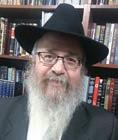
On Pesach, we were slaves and became free. We eat unleavened bread to demonstrate our humility before the Creator.
Rabbi Yossi Rosenblum Parshat Shemini | Leviticus 9:1 – 11:47
DORFMAN: Gertrude Faye Dorfman (Flash) passed quietly on April 3, 2023. She is survived by her children, Ellen Dorfman-Kleinman and her husband Kim Kleinman (St. Louis), Martin Dorfman and his wife Monica Dorfman, and her grandchildren Samuel Kleinman (New York City) and George (Boston) and Maya Dorfman, and her sister Sylvia Lenoff. Funeral was held at Homewood (Lubavitch) Cemetery on April 5. Donations can be made in her name to Yeshiva Schools of Pittsburgh, where she worked
FEHL: Laura Fehl, surrounded by love, Sunday, April 9, 2023. Laura was the devoted mother of Sarah (Kenny Higgenbotham) Fehl, very proud savtah of Aiden Mikszan, daughter of Sandy Benedict and sister to Carol (David) Sobek, John, David, Paul and the late Bobby Benedict. She will be sorely missed by her special sisters Suzan Hauptman and Sheree Lichtenstein and her many, many friends including those who visited with her in her final days and the ones thinking of her in spirit and in love. Laura will forever be remembered for her countless hours of doing what she loved in the many roles of voluntarism and leadership at Temple Sinai in so many ways, Women of Reform Judaism as area director, and Women of Temple Sinai as a president and longtime board member. She created her own successful organizing business for which she took great pride in helping her clients. But her most loved role was being savtah to Aiden and spending time with him. Never would there be a conversation where Aiden wasn’t a focus. We will see her eyes in him as he grows into an amazing person. Her final mitzvah was becoming an organ donor so that she may continue to do good through the lives of others. Services were held at Ralph Schugar Chapel, Inc. Interment Temple Sinai Memorial Park. In lieu of flowers, donations may be made to Temple Sinai of Pittsburgh, 5505 Forbes Ave, Pittsburgh, PA 15217 or the WRJ-Yes fund, wrj. org/donate-wrj, in Laura’s memory. schugar.com
GOTTLIEB: Gloria Elbling Gottlieb, age 96, of Coconut Creek, Florida, on April 8, 2023. Beloved wife of the late Irving Elbling for over 50 years and the late Walter C. Gottlieb. Daughter of Sarah Raffle. Loving mother of Julian Elbling and Howard Elbling. Grandmother of Sarah Straus (Jacob), Rachel Albert (Steve), Dena Elbling and Shayna Elbling. Great-grandmother of Lily, Ben, Jonah, Olivia, Kristopher, Emily (Ash) and Frida. Partner of the late Dan Miller and the late Robert Perwein. Also survived by numerous cousins, nieces and nephews. The family would also like to especially thank Gloria’s friends and neighbors Linda and Al, Michelle and Eppy and Lois Foreman for their care and attention over the past year. Gloria was a graduate of Taylor Allderdice High School and attended the University of Pittsburgh. She was a lifelong member of Congregation Beth Shalom in Pittsburgh, where she was bat mitzvahed, confirmed and married, and saw her sons bar mitzvahed and married. Gloria viewed herself as a professional volunteer and was a member of 16 Jewish organizations, both locally in Pittsburgh and nationally. She most notably spent time as the national president of NA’AMAT USA, an organization that provides services to women and children in Israel. During her time with NA’AMAT, Gloria traveled to Israel 39 times, as well as Canada and South America. In Israel, she met with Golda Meir, Shimon Peres, Abba Eban and other historic figures. The City of Pittsburgh changed the name of Forbes Avenue in Squirrel Hill to “Gloria Elbling Avenue” for a week during her tenure as president of NA’AMAT USA. In 1987, she was selected by her peers as a “hardworking woman” in a directory of prominent Pennsylvania women. Even into her 90s, Gloria remained involved, serving as the president of the Pennsylvania Club at the Wynmoor community in Florida where she resided. Gloria had three loves in her life: family, Israel and cooking. She was a great cook, crafting Jewish delicacies until the very end, an avid shopper and bargain hunter, as well as the matriarch of the Radbord family. Gloria often said, “Old age is a blessing and a curse; it takes a lot of work to grow old.” Her family believes she was blessed with a full and remarkable life. Services were held at Ralph Schugar Chapel, Inc. Interment Beth Shalom Cemetery. Contributions may be made to Congregation Beth Shalom, 5915 Beacon Street, Pittsburgh, PA 15217. schugar.com

GRUMET: Larry M. Grumet (May 3, 1945 – April 8, 2023): We are heartbroken to announce the passing of Larry, cherished husband of Janice, beloved father of Sarah Grumet (Ian White). Beamingly proud Papa to Bellamy Grumet-White (a pisher cut straight from the Grumet cloth). Larry is survived by many dear nieces, nephews, cousins, grand-niblings, and many deeply fond (and indulgent) friends and neighbors. Larry was preceded in death by his parents, Clara (Kweller) and Oscar Grumet, his older sister, Susan Roth, and a handful of aunts and uncles. Larry was born in 1945 in Pittsburgh, and lived the bulk of his life in the Squirrel Hill neighborhood; he was known variously as “The Mayor of Darlington Road” and
Jewish Association on Aging gratefully acknowledges contributions from the following: A gift from ...

Anonymous
Anonymous
memory of...
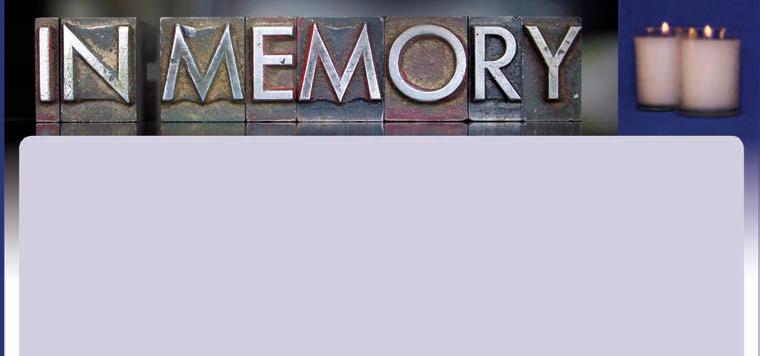
Rogers
Mullen
Anonymous Harry Stevenson
Marc M Bilder Shirley Bilder
Luisa & Howard Cohen and Family
Luisa & Howard Cohen and Family
Luisa & Howard Cohen and Family
Luisa & Howard Cohen and Family
Harold & Debra Goldberg
Edward M Goldston
Thelma Chizeck
Wise
Dorothy Fisher
Mollie Bucaresky
Penina R Goldberg
Labovitz
Geraldine Gomberg Anne Marks
Geraldine Gomberg Clarence Gomberg
Marjorie Halpern Isabel Glantz
Susan N Johnson
Karen R Jurgensmier
Bruce M Herron
Sylvia Rosenfeld
Denise Kaiser Bertha Kaiser
Alan Korobkin Eva Korobkin
Wendy Lamfrom Mervin Feldman
Irwin Lederstein Hyman Lederstein
Sally & Tim Litman Julia & Arthur Goldsmith
Bernice & Jack Meyers
Joseph M Epstein
Maxine & Larry Myer George Zeidenstein
Sylvia P Plevin
Joan Privman
Flo & Caryn Rosenthal
C Plevin
Regina Margolis
Sara Esther Dickter
Sandra Schanfarber Diann Taxay
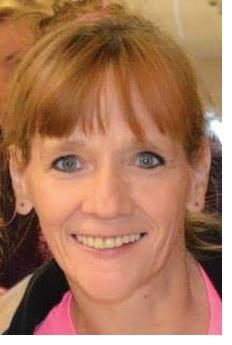

Stuart & Murial Spitz
Jacquelin G Wechsler
Andrew H Spitz
Norman Weissman
Sunday April 16: Isadore Ash, Jennie Breakstone, Sam Dizenfeld, Robert F Glick, Zelda Glick, Sarah
Harris, Celia Jacobson, Margaret Green Kotovsky, Sam Labovitz, Mildred Levine, Ethel Mallinger, Beatrice
Blumenfeld Nathan, Morris Perelstine, Louis Rubin, William Sacks, Bess H Strauss, Bertha Swartz
Monday April 17: Sara Altman, Zachary Caplan, Lester Wolf Cohen, Philip M Colker, Joseph M Epstein, Isabel Glantz, Adel Horwitz, Maier Krochmal, Joseph M Lazier, Hyman Lederstein, Ben Levick, Nathan Levy, Isadore Mendelson, Rae Pariser, Leah Simon, Norma Stockman, Earl Roy Surlo , Isidor Weiss
Tuesday April 18: Shirley Bernstein, Fannie Caplan, Irene Elenbaum, Pearl Rebekah Friedman, Julia R Goldsmith, Louis L Goodman, Betty Shermer, Beatrice P Smizik, Myrle Thomashefsky Spiegel, Frieda
Tro kin, Lawrence Martin Wallie, Jacob Young
Wednesday April 19: Israel Blinn, Morris D Canter, Clara Esther Choder, Bennie Chotiner, Mollie S Davis, Rebecca Fineberg, Lillian Forman, Rachel Hodes, Max Kalser, Albert Katzman, Sarah Kramer, Julian H Rozner, Ida Schmidt, Henry Singer, Benjamin William Steerman, Irving M Stolzenberg, Sylvan B. Sunstein, Belle Treelisky, Sara H Udman, Morris S Unger, David Whitman, Leroy L Williams
Thursday April 20: Joseph Abraham Abady, Jacob Ash, Joseph A Block, Selma Winograd Cohen, Max Felder, Mollie Fiman, Abraham Friedman, Jacob Goldman, Clarence Gomberg, Harry Hertz, Bella Hostein, Pearl Janowitz, Fae Greenstein Klein, Rose Lebowitz, Jacob Levinson, Morton (Bud) Litowich, Bessie Mallinger, Anna M Oppenheim, Morris Pearlman, Evelyn M Perlmutter, Meyer Schlessinger, Alvin Silverman
Friday April 21: Shirley Bilder, Ruth Fleser Coplon, Blanche Epstein, Alfred Gordon, Harry Greenberg, Fannie Horowitz, Tillie G Kubrin, Joseph Lederer, William Lewis, Edward Mermelstein, Hanna W Pink, Albert Silverberg, Annabelle M Topp, Florence P Wedner, Louis Zacks
Saturday April 22: S . Abel Alterman, Louis Berman, Florence Cohen, Lillian Finn, Bertha Goodman, Harry M. Greenberger, Sidney Greenberger, Sadie Klein, Frederick Knina, Stanley Slifkin, Karl Zlotnik





“Always A Higher Standard” Dustin A. D’Alessandro, Supervisor • Daniel T. D’Alessandro, Funeral Director 4522 Butler St. • Pittsburgh, PA 15201 (412) 682-6500 • www.dalessandroltd.com


High above the Ohio River, down river near Chartiers Creek, sits a symbol of the growth and success that was McKees Rocks. Ahavath Achim “Brothers of Love” Cemetery represents the Jewish community that originated in ‘ e Bottoms’, a low lying area along Munson Avenue where the shul stood next to the Roman Catholic church, which was next to the Russian Orthodox church. A PreWW I melting pot.
Jewish hucksters and peddlers had arrived as early as 1892, most from the Hill District. During the period from 1900 to 1910, the growth rate in the Rocks was eight times that of Allegheny County as a whole. is railroad hub, with the Pittsburgh and Lake Erie Railroad yards nearby, was key to the area’s growth. e earliest burial on this hillside cemetery on Green Oak Drive, adjacent to Pliskover Cemetery, dates back to 1901, two years before the shul was founded. 300 graves have been well kept and maintained, behind a decorative iron gate, by the Slomberg and Jacobs families, and others of the proud Ahavath Achim Association.
Never having more than 330 Jewish residents, McKees Rocks was small but mighty, as the police chief, re chief, and mayor were all members of Ahavath Achim. Before WWII the community had a fulltime rabbi and kosher butcher. e congregation closed in the late 1950’s with many families moving to Squirrel Hill. e cemetery has kept them together.
Notable burials include Joseph “Yussy” ompson, Police Chief; Fire Chief Hyman Jacobs; and David Hershman, Mayor of McKees Rocks. Few Jewish communities, if any, can claim this.
Another notable burial is that of Art Simon, a former Churchill High grad and University of Pittsburgh football player who was killed in 1987 at the age of 35 while leading co-workers in defense of a robbery at a Michigan restaurant. A second-team all-state defensive lineman and member of the Big 33 team, Art Simon never forgot his roots, and volunteered his time with the Churchill program during his adult years.
Ahavath Achim began an association with the JCBA in 2023.
For more information about JCBA cemeteries, to volunteer, to purchase plots, to read our complete histories and/or to make a contribution, please visit our website at www.JCBApgh.org, email us at jcbapgh@gmail.com, or call the JCBA o ice at 412-553-6469. JCBA’s expanded vision is made possible by a generous grant from the Jewish Federation of Greater Pittsburgh’s Jewish Community Foundation
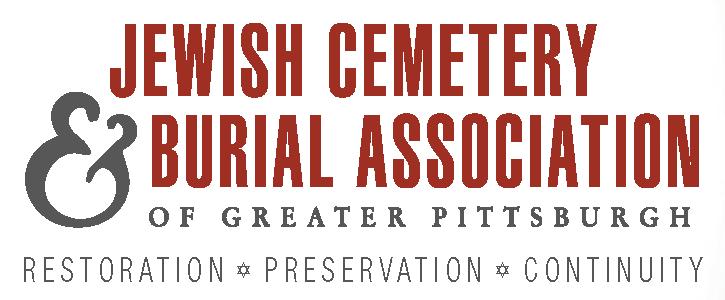
“That guy yelling at speeders to ‘Slow down!’” Larry attended Allderdice High School and Edinboro University. In 1966, as a college junior, Larry dropped out and enlisted in the U.S. Army with the intention of “saving Squirrel Hill from Communism.” Larry served as an M.P. for three years, spending part of his service in France and Germany before being sent to Vietnam, where his active combat experience included the Tet Offensive. He graduated from The University of Pittsburgh in 1983, after taking 21 years off to find himself (and marry Janice). Larry’s colorful professional career included brief stints as both a narcotics agent and a go-go dancer before he ultimately became a banking specialist in loans/ collections. He transitioned to the role of retired/housewife in 1987. Larry was an ardent cat lover, vocal veteran against wars, proponent of sensible gun laws and dogged advocate for justice. He loved dancing with his wife, badgering his daughter and getting his way. Larry was a dutiful son, doting nephew, goofy uncle, loved cousin, reliable friend and neighbor (always there to lend a hand, or escalate on your behalf), and a professional neb-aroundtown. He was a loyal, loving and perpetually irreverent husband, father and soul. A true “G.D.I.,” his mark on his family and community will ripple outward for generations. Services were held at Ralph Schugar Chapel, Inc. Interment Homewood Cemetery. Donations in Larry’s honor can be sent to Animal Friends Pittsburgh (thinkingoutsidethecage.org), or to Planned Parenthood (plannedparenthood.org). schugar.com

MANDEL: Lynn Ruttenberg Mandel, on Tuesday, April 4, 2023. Beloved wife of the late Allen J. Mandel and Jay C. Keizler. Loving mother of Bruce (Paula) Keizler, Lee Keizler, Marci (John) Brewer and Tracy Mandel. Sister of Nancy Beighley. Loving “Nina” to Julia, Sasha, Jeffrey, Stella Keizler and Sophia Brewer. Aunt of Spencer (Mary Hollis) Beighley and Lisa Beighley. Lynn taught nursery school at the Carriage House for 20-plus years and volunteered at Temple Emanuel. Lynn was a kind and caring friend to many who will miss her unwavering friendship. She was always understanding and filled the room with laughter and love; whatever was needed, she was always there for her friends. Lynn’s greatest joy was traveling to spend time with her niece, nephew and grandchildren. After her family, her second biggest love was Pittsburgh sports. Services were held at Temple Emanuel of South Hills. Interment Mt. Lebanon Cemetery – Temple Emanuel Section. Contributions may be made to Temple Emanuel of South Hills, 1250 Bower Hill Road, Pittsburgh, PA 15243 or SHIM (South Hills Interfaith Movement) 5301 Park Avenue, Bethel Park, PA 15102. Arrangements entrusted to Ralph Schugar Chapel, Inc., family owned and operated. schugar.com

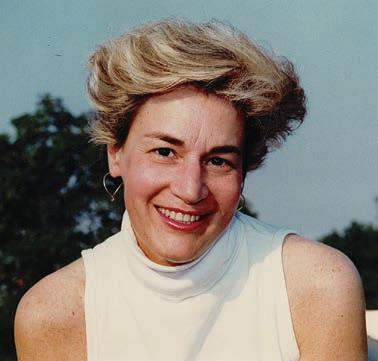
3-month 4. 0
Bank-issued, FDIC-insured % APY* % APY* % APY*
6-month 4.90 1-year 4.90
Leah Laurent Financial Advisor
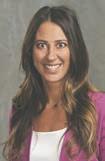
1133 S Braddock Ave 2nd Floor Entrance On Sanders St Pittsburgh, PA 15218
412-242-1075
* Annual Percentage Yield (APY) effective 0 / /2023. CDs offered by Edward Jones are bank-issued and FDIC-insured up to $250,000 (principal and interest accrued but not yet paid) per depositor, per insured depository institution, for each account ownership category. Please visit www.fdic.gov or contact your financial advisor for additional information. Subject to availability and price change. CD values are subject to interest rate risk such that when interest rates rise, the prices of CDs can decrease. If CDs are sold prior to maturity, the investor can lose principal value. FDIC insurance does not cover losses in market value. Early withdrawal may not be permitted. Yields quoted are net of all commissions. CDs require the distribution of interest and do not allow interest to compound. CDs offered through Edward Jones are issued by banks and thrifts nationwide. All CDs sold by Edward Jones are registered with the Depository Trust Corp. (DTC).
Audrey Horne Milch passed away on Saturday, April 8, 2023. Beloved wife of Jerome (Hershey) Milch for 68 years, and sister of Eileen (Dr. Martin Winkler). Audrey was born in Pittsburgh in 1935 and grew up in Squirrel Hill. After graduating from Taylor Allderdice, Audrey and Hershey wed on July 4, 1954. After Navy service, they returned to Pittsburgh where Barbara was born, followed by Eric six years later. Audrey was a true force of nature, constantly hosting a myriad of friends and family for Shabbat dinners and holidays. She was the perfect hostess and friend to many. She never forgot a birthday or anniversary and each one was a special event. She was a true people person and constantly had a full house on Raleigh Street. She was active in Hadassah and The Garden Center, and volunteered weekly delivering kosher food to prisons and institutions. Her pride and joy were her family. She is sadly missed by her husband Jerome (Hershey) Milch, daughter Barbara Milch (Etty Reut), and son Dr. Eric Milch (Leah). Loving grandmother of Kim Ahissar (Kaya), Allyson Betech (Nissim), Benjamin Milch (Talya), Elizabeth Pearl (Nosson), Caroline Michaeli (Yehonatan), Li Milch (Dror Kantarovich), Maya Milch and Dalia Milch. Great-grandmother of Lenny and Neo Ahissar, Gavriel Arielle and Avigayil Betech, Eden and Nathan Milch. PJC

5125FifthAve. 2&3Bedrooms Cornerof FifthandWilkins Spacious
www.kaminrealty.kamin.com



Smith-Rosenthal Team
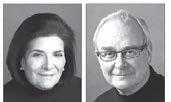

Jason A. Smith & Caryn Rosenthal
Jason: 412-969-2930 | Caryn: 412-389-1695
Jasonasmith@howardhanna.com
Carynrosenthal@howardhanna.com
5501 Baum Blvd. Pittsburgh PA 15232
Shadyside Office | 412-361-4000



















206 N. Woodland Road
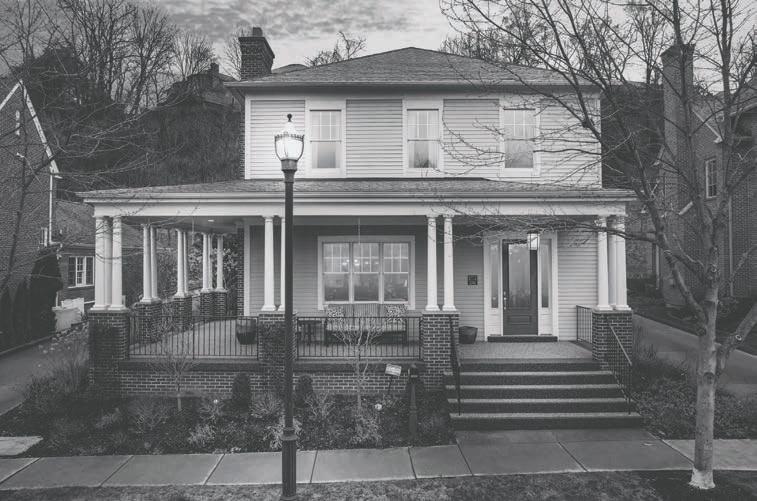
North Woodland Road Townhome. Unique custom built sophisticated 4 levels. Lower Level has a great wine cellar, storage, int garage, and a side room which could be an office. First floor has a great room kitchen, dining and living area, plus 1/2 bath. This room leads to an unbelievable courtyard and luscious grounds with a sprinkler system. Next level- large room with a whimsical full bath. Top level has a great master area, with master bath and laundry, Smashing steel and glass staircase, dramatic lighting. Terrific acrhitectural details.
OAKLAND - $300,000
Dithridge House
New listing. 2 bedroom 2 bath on the 11th floor with a closed in balcony with a great view. Balcony can be used year round.Building has many amenities. Guest Room, Party Room, Meeting Room, Pool, Guest Suites, Meeting Room, Outdoor Guest Parking, Valet Parking etc.
LAWRENCEVILLE - $620,000 - MOTIVATED SELLERS - PENDING
721 53rd Street
Sherri Mayer, Realtor Squirrel Hill Office







C: 412-760-0412
O: 412-421-9121x225 sherrimayer@howardhanna.com HowardHanna.com
A stunning Lawrenceville home o ers 4 levels of luxurious finishes and unparalleled city views. The dazzling hardwood floors and an open-concept layout make living and entertaining easy. The kitchen is a chef’s paradise with stainless steel appliances, Glacier White Quartz countertops, a large island with seating, and crisp white kitchen cabinets elevated with a pop of color from the handmade backsplash tiles and mosaic inlays. Three spacious bedrooms, 3.5 contemporary-styled baths, and thoughtful storage throughout. The top-floor bonus room features French doors to a private balcony with exceptional vistas of downtown and beyond. Enjoy the convenience of dedicated 2-car garage parking equipped with an EV charging outlet. Convenient to public transportation, the Universities, Hospitals, High-Tech corridors, restaurants and shopping. LERTA Tax Abatement.

 — FILM —
By Stephen Silver | JTA
— FILM —
By Stephen Silver | JTA
In the hit show “The Sopranos,” veteran actor Jerry Adler plays mob-adjacent Jewish businessman Hesh Rabkin, who made a fortune in the music business decades earlier. In a first season episode, Hesh is confronted by a rapper seeking “reparations” for a late Black musician who he says Rabkin didn’t pay fairly for a hit record.
When Hesh responds by bragging that he wrote the hit songs he worked on back in the day, Tony Soprano corrects him: “A couple of Black kids wrote that record, you gave yourself co-writing credit because you owned the label.”
The greedy Jewish music mogul has been a common trope, from the acclaimed work of Spike Lee to the rants of Kanye West. “Walk Hard: The Dewey Cox Story,” a 2003 parody of music biopics, made fun of the trope itself by making the record executives into Hasidic Jews, led by Harold Ramis. (They were depicted as friendly and not so greedy, and the film’s writers, Judd Apatow and director Jake Kasdan, are both Jewish.)
The new movie “Spinning Gold,” which opened in theaters last week, tells the real-life story of Neil Bogart, the founder of Casablanca Records and a top music executive of the 1970s. It breaks from the mold of most other music biopics in a couple of key ways: The protagonist is a music executive, not an artist or a group, and the music mogul character — in this case, another Jewish one — is not treated as a villain.
The Jewish Brooklyn native whose given name was Neil Scott Bogatz helped promote bubblegum pop and early disco, signing artists such as Donna Summer, Gladys Knight, Cher and the Village People. A notable rock signing was Kiss. In one scene of “Spinning Gold,” the Bogart character (played by Jewish actor Jeremy Jordan, who starred in the Broadway hit “Rock of Ages”) implies to Kiss’ Gene Simmons that he signed the band, in part, because Simmons’ and guitarist Paul Stanley’s real names are Chaim Witz and Stanley Eisen. He relates to them, the film argues, as fellow Jewish guys who hailed from the outer boroughs of New York City. Bogart died of cancer in 1982.
The movie covers a long span in Bogart’s life and career, and it shows him struggling for many years before striking gold by shepherding Donna Summer’s single “Love to Love You Baby” to hit status. Timothy Scott Bogart, the mogul’s son and the film’s director, did not want to depict Bogart as an unambiguous hero. In the story, the elder Bogart is shown cheating on his first wife with the woman who would become his second, and the film also makes clear that his record label was heavily in debt for many years. It does sometimes show him at odds with the talent, such as when the members of Kiss complain to him that their career hasn’t taken under Bogart’s tutelage. “I don’t know that I looked at it as protagonist or antagonist, I think he was a bit of both,” Timothy Scott Bogart told the Jewish Telegraphic Agency.
“But I do think the character of the executive, in general, has been a much-maligned
character… certainly in the music biopic world,” he added. “And that’s not who Neil Bogart was.”
He added that the personal relationships between his father and the label’s artists were always valued. He remembers his family going on vacation with Donna Summer, and Gladys Knight and members of Kiss being at his home.
The younger Bogart, who previously produced the 2019 Vietnam War drama “The Last Full Measure,” said that rather than relying on any book or article, he constructed the film based on interviews he did with his artists, executives and others involved in the story over several years.
Jews have been part of the business side of the American music industry for most of its existence, in part because of the way they were shut out of many professions in the first half of the 20th century. Music executive Seymour Stein, who passed away last week after a long career of working with the likes of Madonna and The Ramones, said in a 2013 interview that “music is something Jews were good at and they could do. All immigrants into America tried their hand at show-business.”
Some executives in the early days of the music industry — Jewish and non-Jewish — did exploit their artists, doing everything from underpaying Black artists to denying them songwriting credits or royalties. Moguls of the past with reputations for doing so included Herman Lubinsky of Savoy Records. Others, like the recently deceased Stein and Milt Gabler of Commodore Records, had better reputations. Historians have differing opinions on specific individuals.
“There is a scholarly controversy between those who look at the moguls and say that they exploited the [Black] musicians and those who say that they encouraged and made possible Black success in music,” said Jonathan Sarna, the professor of American Jewish history at Brandeis University. “Both use the same data, but some point to the money Jews made and others point to the musicians that Jews
discovered and promoted.”
Spike Lee drew fire for his depiction of fictional Jewish music executives Moe and Josh Flatbush (played by John and Nicholas Turturro) in his 1990 movie “Mo’ Better Blues.”
“In the history of American music, there have not been Jewish people exploiting black musicians?” Spike Lee said in his defense to New York Magazine in 2006. “In the history of music? How is that being stereotypical?”
Other “bad guy” examples include Paul Giamatti’s Jerry Heller in 2015’s “Straight Outta Compton” and David Krumholtz’s Milt Shaw in 2004’s “Ray.” “Cadillac Records,” from 2008, starred Adrien Brody as Leonard Chess, the Jewish founder of the legendary Chess Records who, the film implied, gave his mostly Black artists Cadillacs, but not always the money they were owed. “Get On Up,” the 2014 biopic of James Brown that starred the late Chadwick Boseman, cast Fred Melamed as famed Cincinnati mogul Syd Nathan (a mentor to Seymour Stein); journalist RJ Smith criticized the film for depicting Nathan as a “bumptious racist.”
Actor Seth Rogen discussed the trope in his 2021 memoir “Yearbook.” He tells the story of running into comedian Eddie Griffin, who at a late point in his career had been struggling to get movie roles. Griffin told Rogen to “tell your Jews to let other people make some movies!”
Rogen called this “insane because he’s really ignoring the fact that if there’s one thing that Jewish people are NOT above, it’s making money producing things that are fronted by Black people. Anyone who’s ever seen a biopic of any Black musician knows the character I’m talking about, and he’s usually very appropriately played by my dear friend David Krumholtz.” (Krumholtz played one of the Hasidic producers in “Walk Hard.”)
“It’s certainly true that, in the post-war U.S. music industry, Jews were more likely to be producers and impresarios than performers. And, given the importance of AfricanAmericans in the post-war U.S. music industry,
that inevitably created a particular kind of relationship with certain Jews in the music industry,” sociologist and music critic Keith Kahn-Harris told JTA.
“That relationship starts to be put under scrutiny and under strain from the late 1960s, as the civil rights coalition started to fall apart and people of color began to assert their agency,” he added. “It’s also true that the post-war music industry was an unregulated space with an almost-normative pattern of exploitation of performers. Put all that together and you have all the ingredients for significant African-American-Jewish tension. Plus, the rapacious Jewish impresario sits easily with ingrained antisemitic stereotypes.”
“Spinning Gold” isn’t the only counterexample to the trend in film. In last year’s Whitney Houston biopic “I Wanna Dance With Somebody,” the Jewish label honcho character, Clive Davis (played by Stanley Tucci), is treated as a benevolent guiding light. In that case, Davis was among the producers of the movie.
“Jewish promoters, like all music promoters, were and are first and foremost business people selling a product. Their goal: promote a performer to reap income. The performers have obviously a different stake in the transaction, although both depend on the other,” said Hasia Diner, an American Jewish history professor at New York University.
“If the hero of the film is the performer then her/his perspective is the focus and almost by definition the promoter’s perspective has to reflect the antagonist encounter. Does that merit being called antisemitism? Not in my estimation. By doing so it undermines real antisemitism. It also ignores the inherent business transaction involved,” Diner said.
How can filmmakers navigate this?
“With great care,” Kahn-Harris said. “It does mean paying attention to how such a portrayal can be accurate and not feeding on deeper antisemitic stereotypes. There’s no one way of doing this. It requires care and attention to the historical record.” PJC
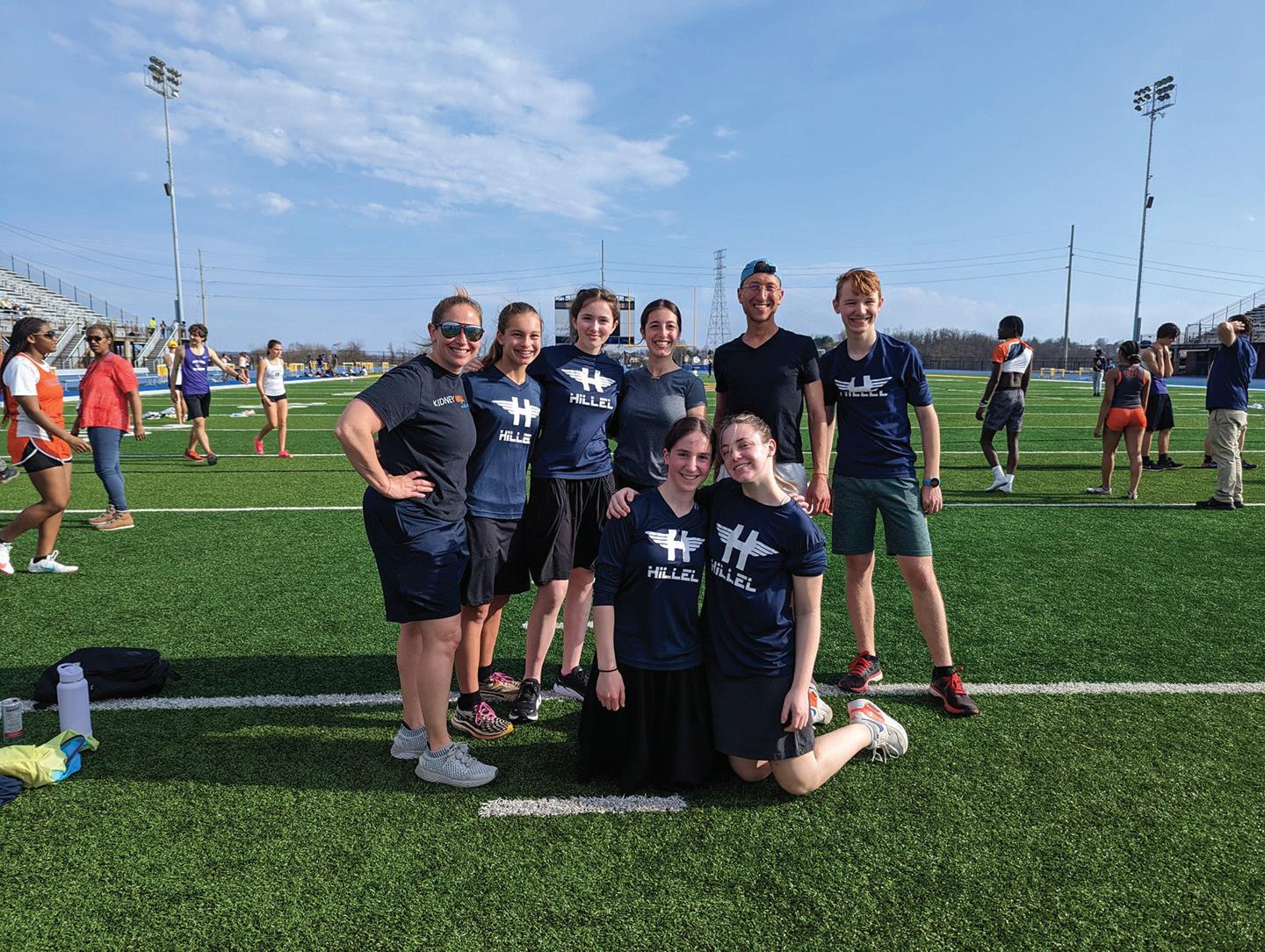
Volunteers helped Our Giving Kitchen Pittsburgh prepare for its Pre-Pesach Store. During
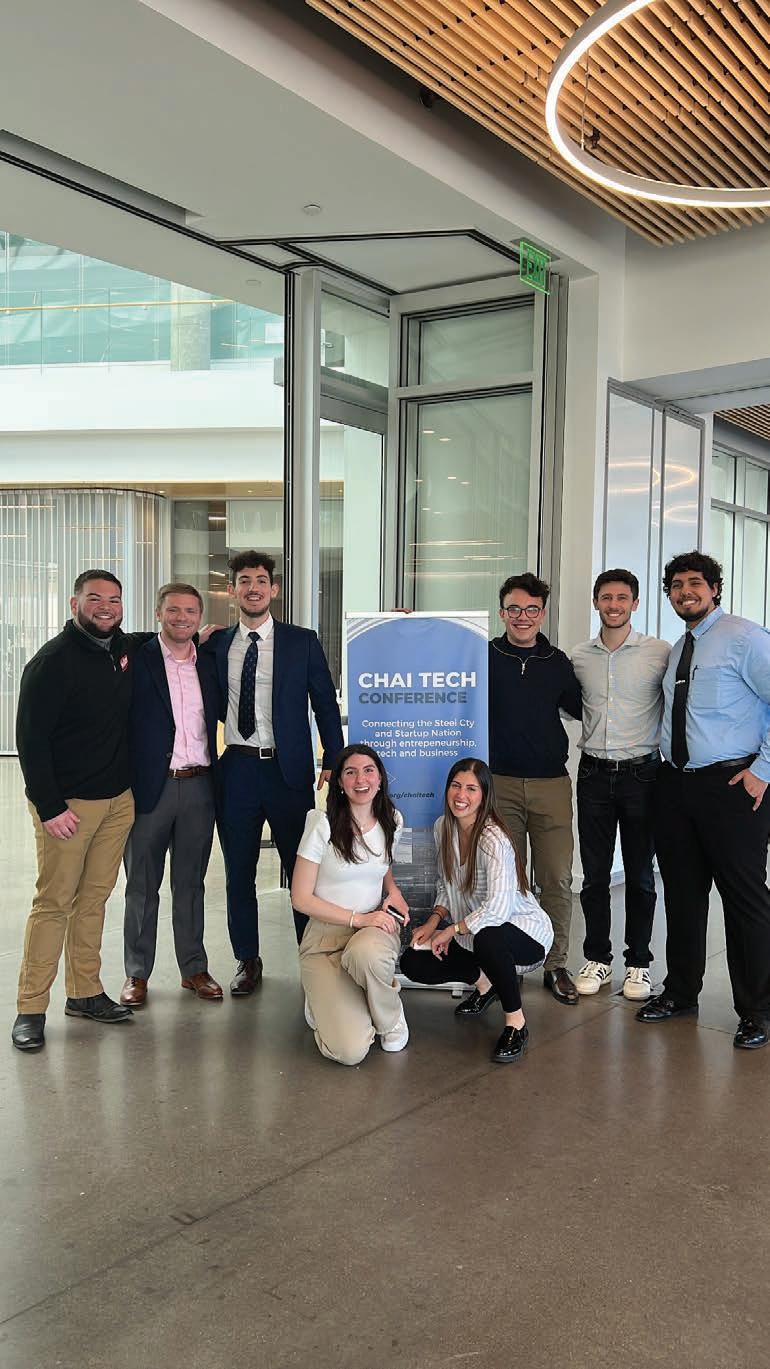
Repair the World Pittsburgh volunteers made homemade food and care packages for reproductive health care workers from Planned Parenthood of Western PA UE
The project and a seder plate reflection activity allowed participants to connect themes of reproductive justice to the Passover story and ritual.
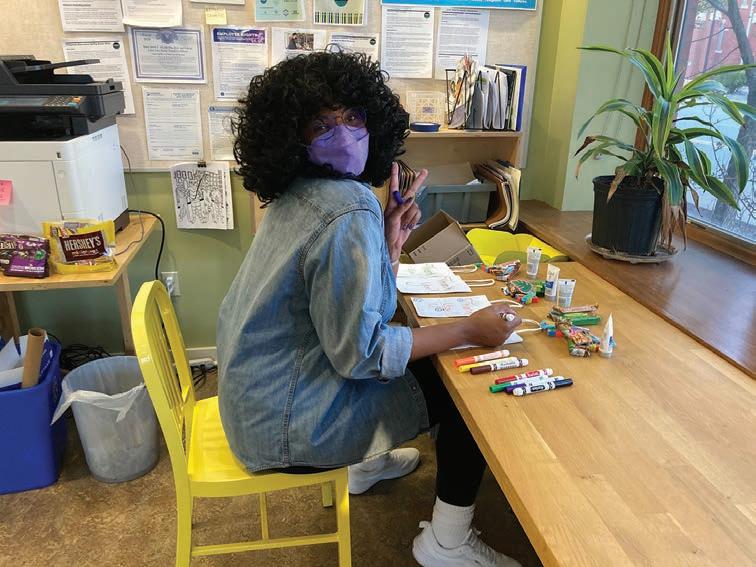
Community Day School staged “Into the Woods Jr.” The production featured Cinderella, Little Red Riding Hood, Jack and the Witch on an adventure involving wishes and consequences.

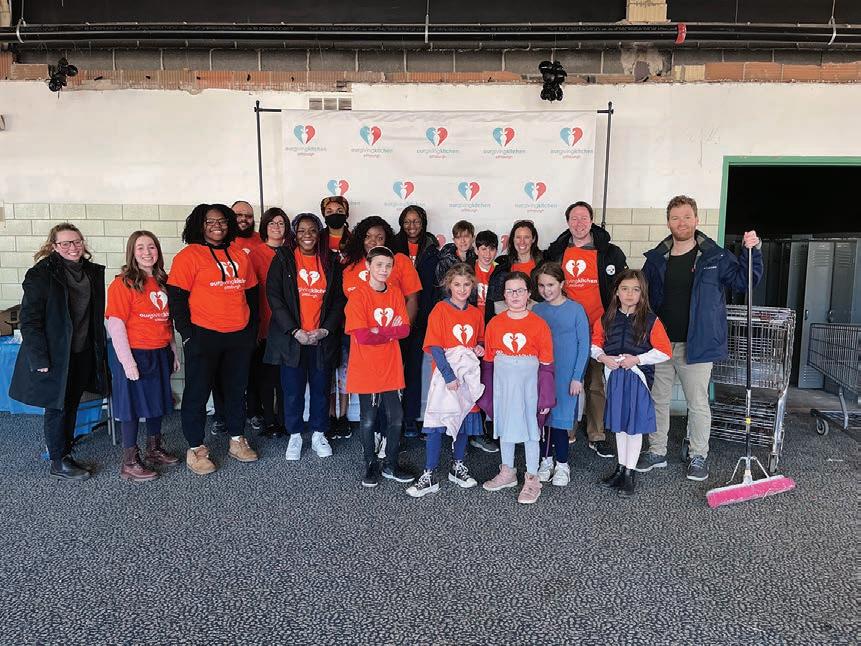
Nefesh Mountain joined Temple Sinai for Shabbat services. The band was in Pittsburgh for the Women of Reform Judaism district conference.
“Not too fast or what you wish, you lose at last.” Photo courtesy of
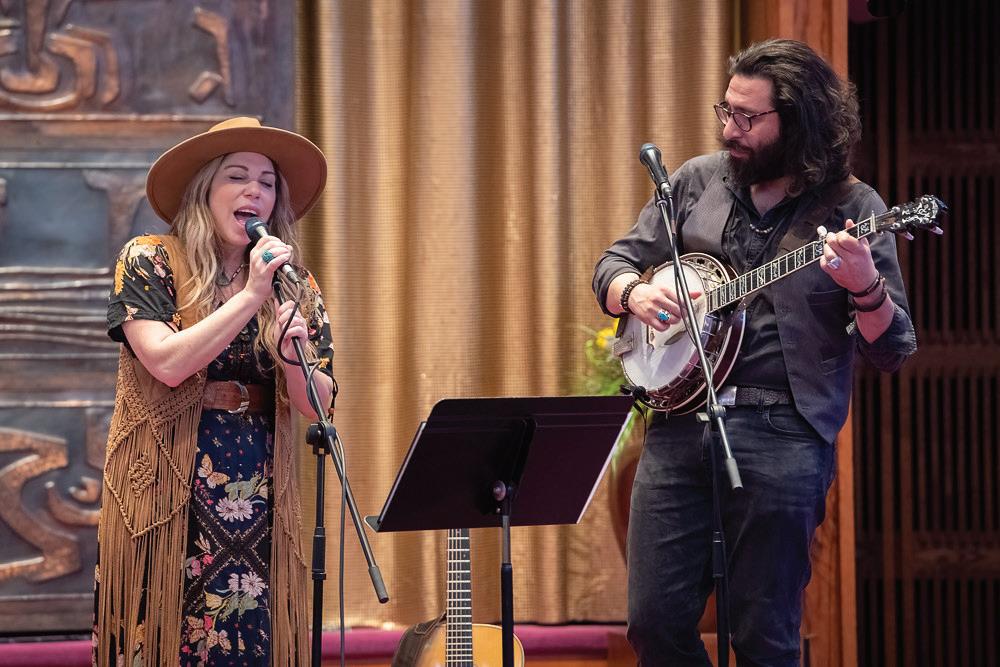
•All-natural, corn-fed beef — steaks, roasts, ground beef and more
•Variety of deli meats and franks
•All-natural poultry — whole chickens, breasts, wings and more
Available at select Giant Eagle stores. Visit GiantEagle.com for location information.
Alle Kosher
80% Lean Fresh Ground Beef

999 lb.
Price effective Thursday, April13 through Wednesday, April19, 2023